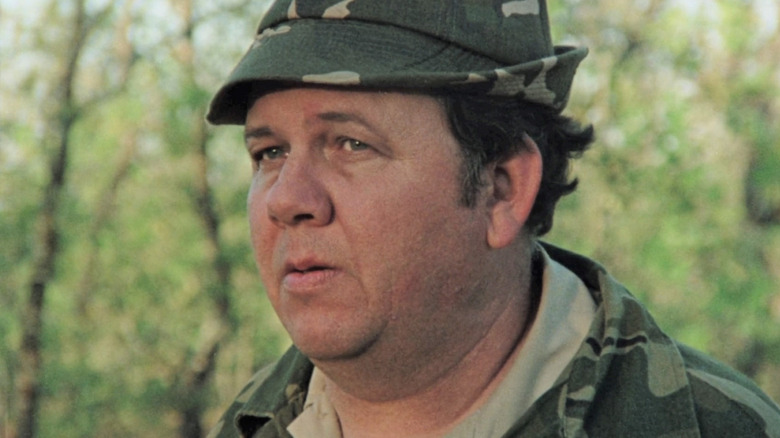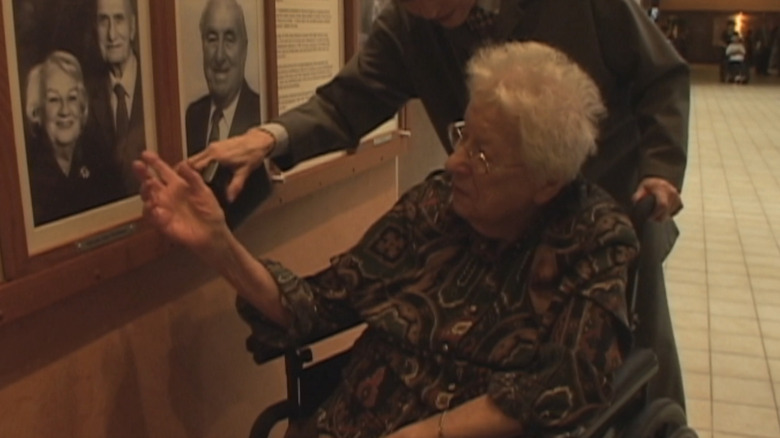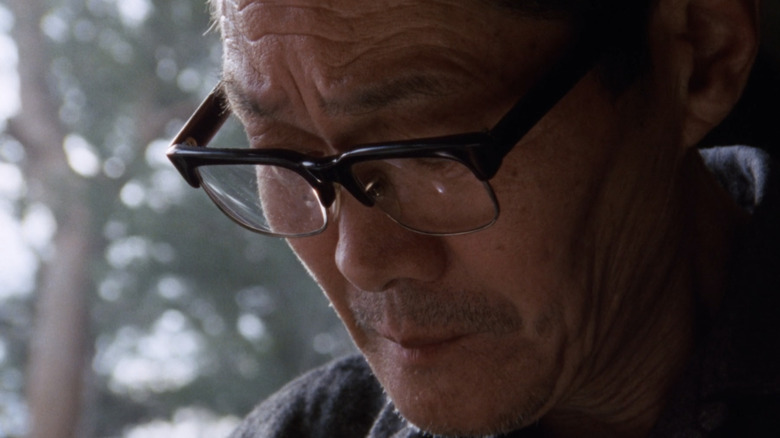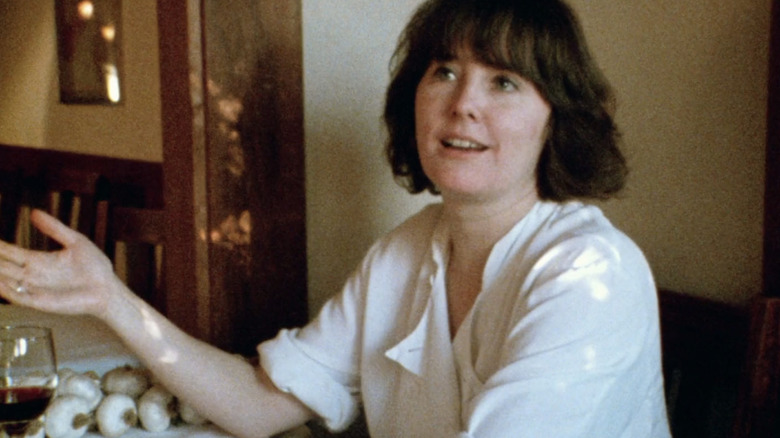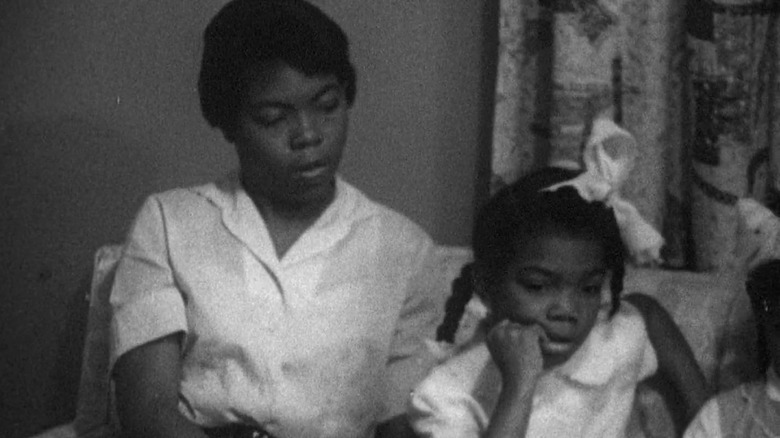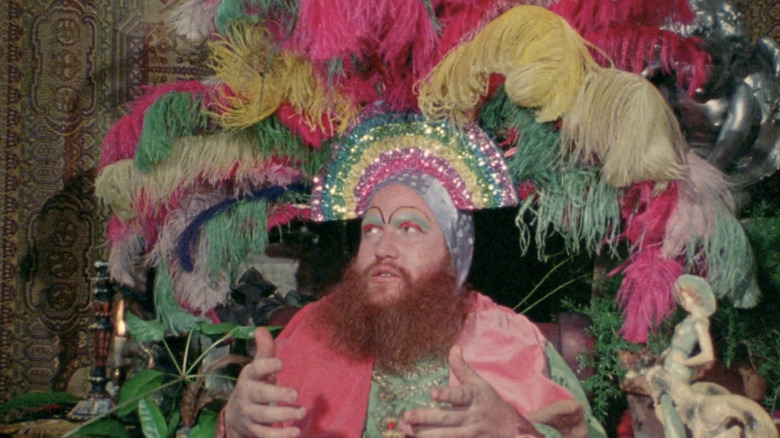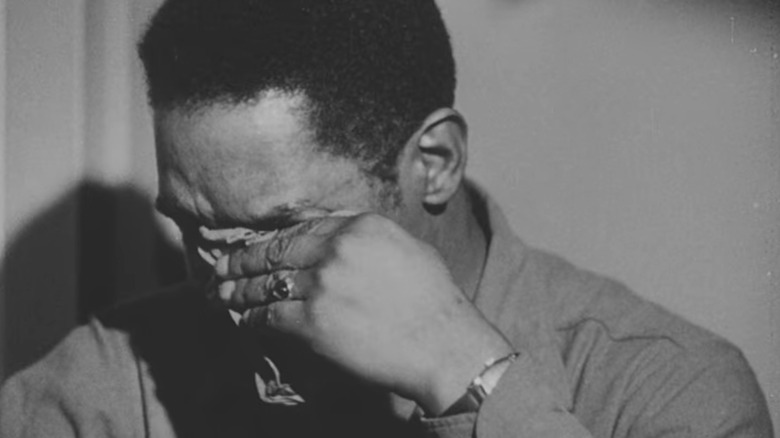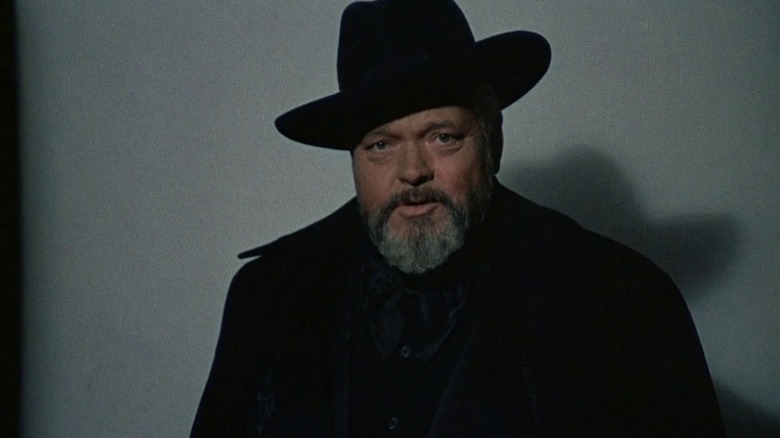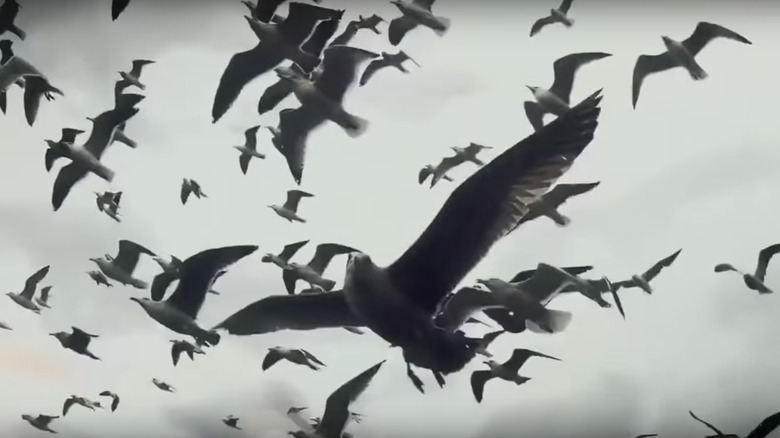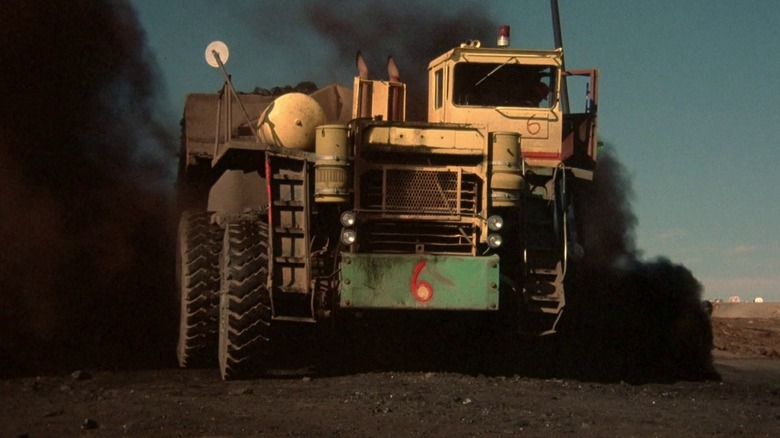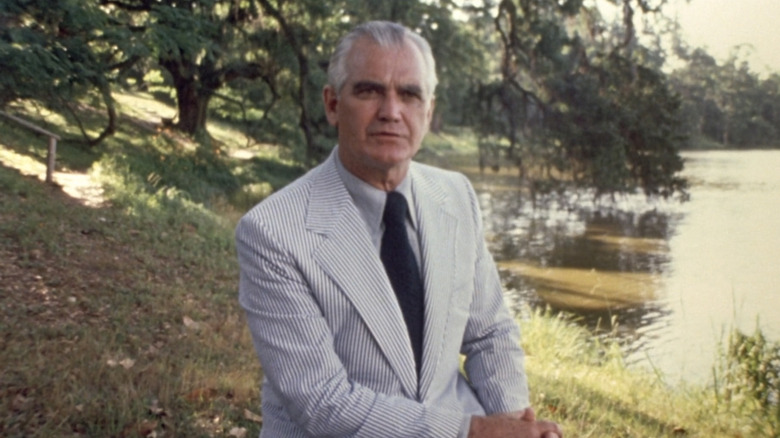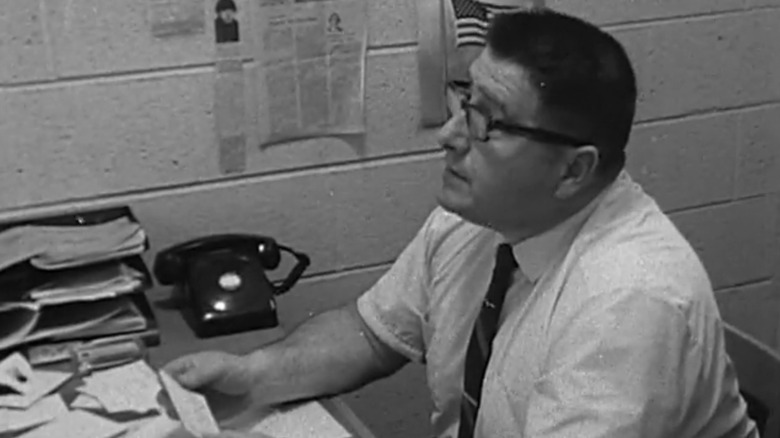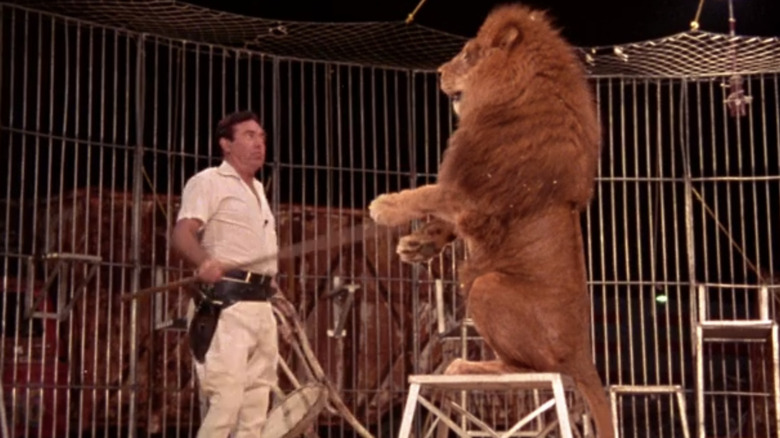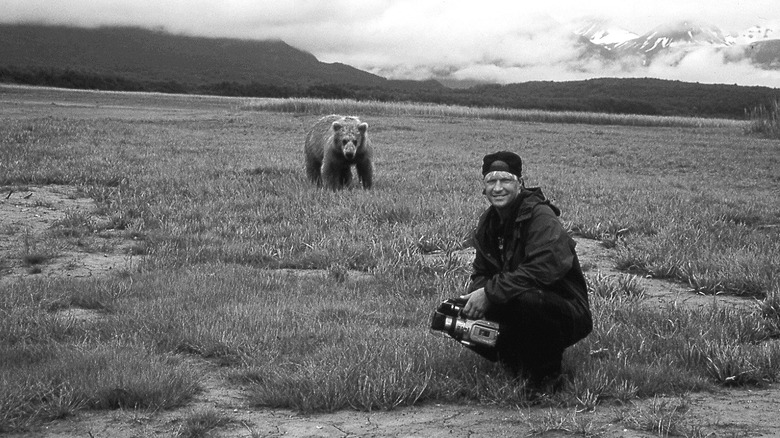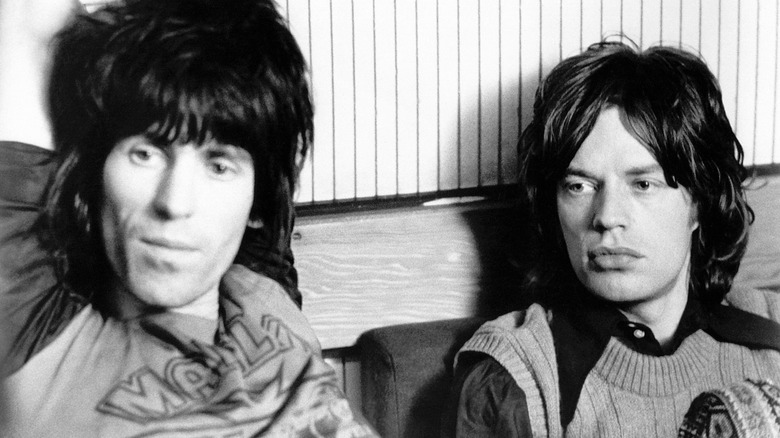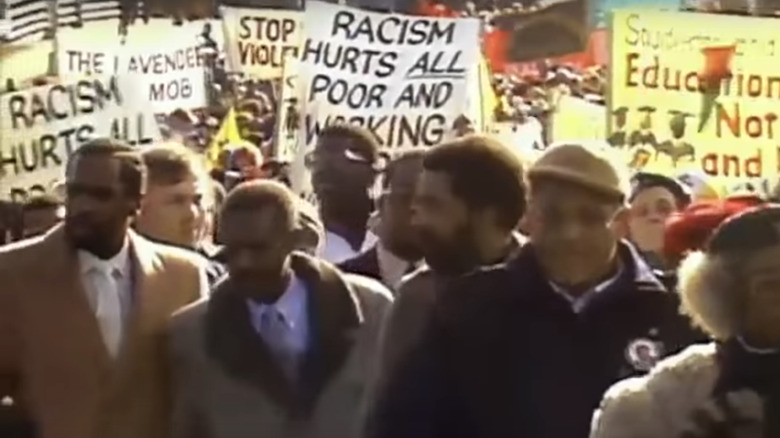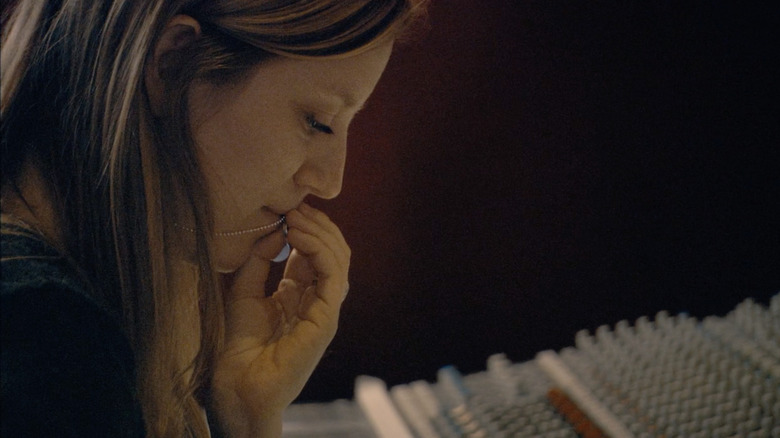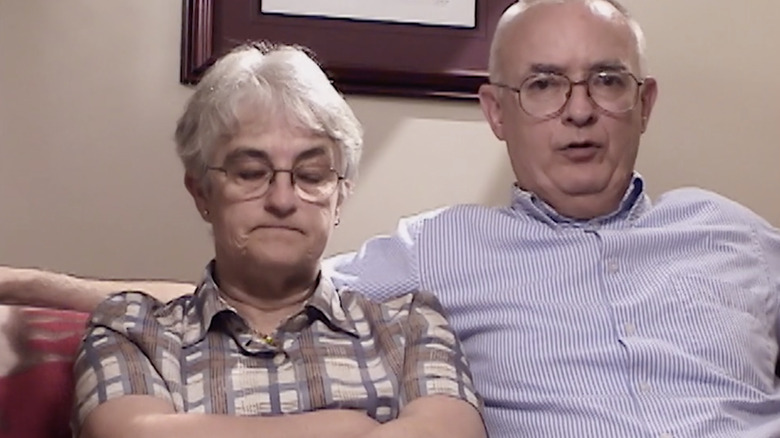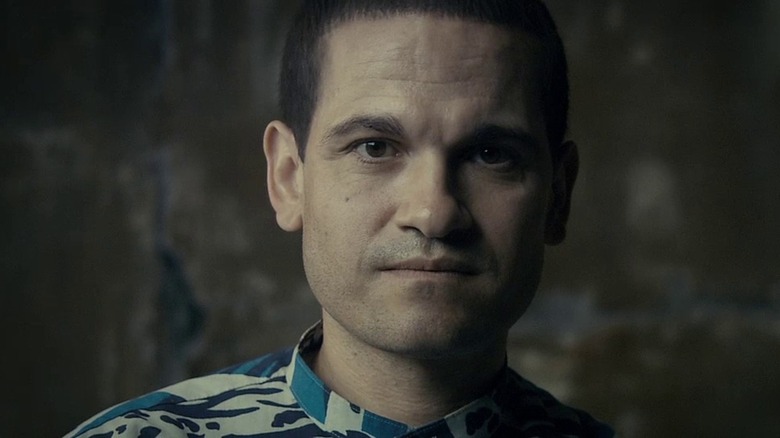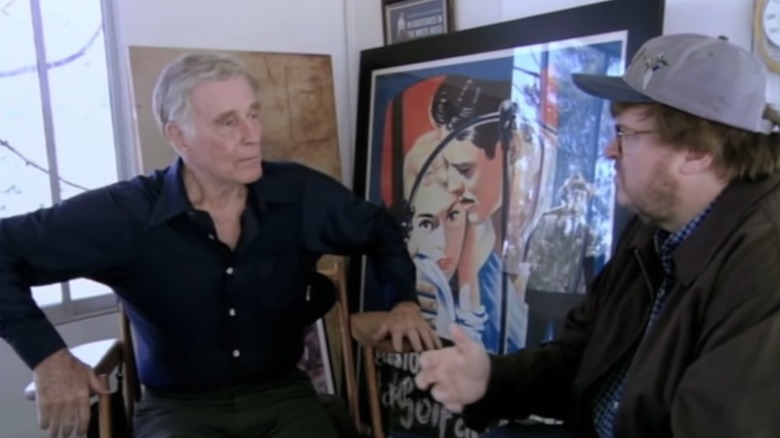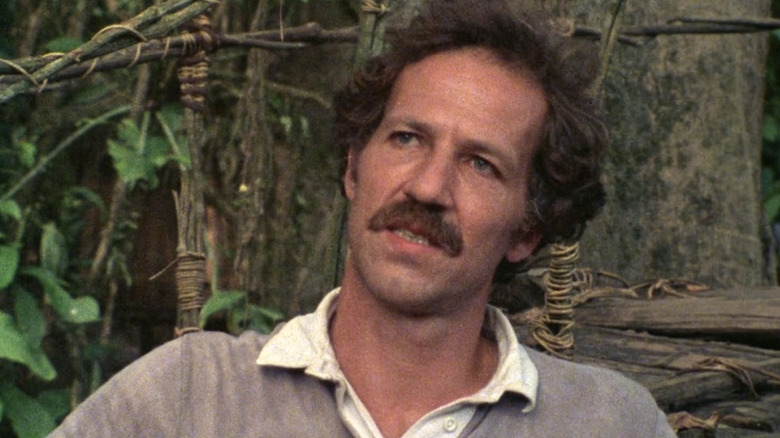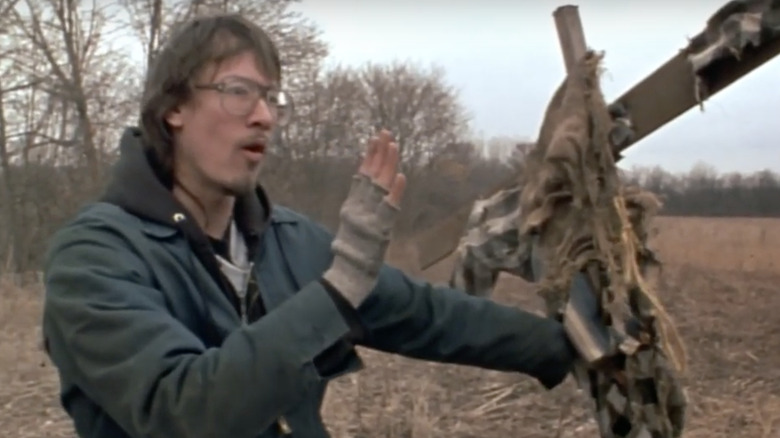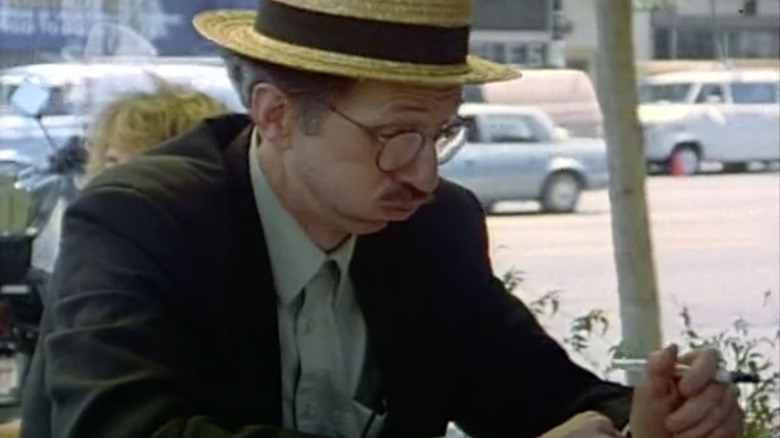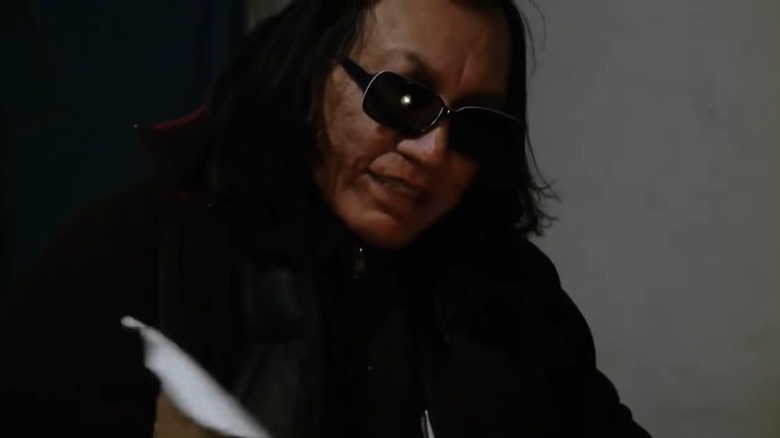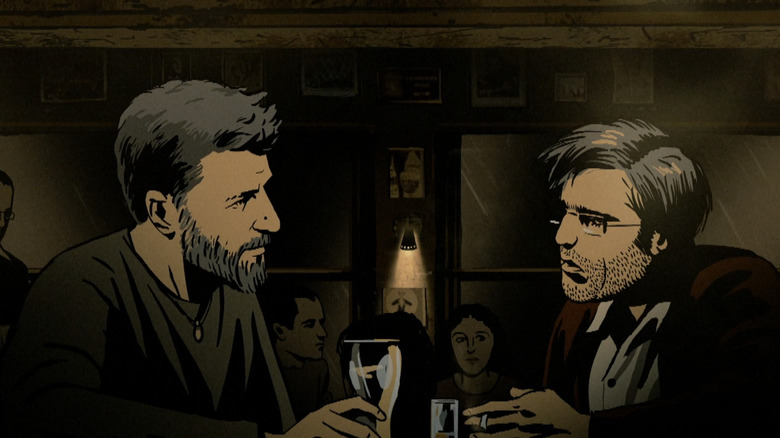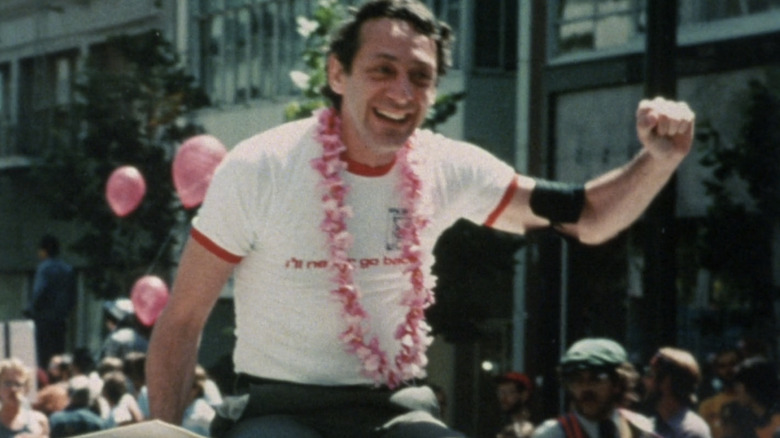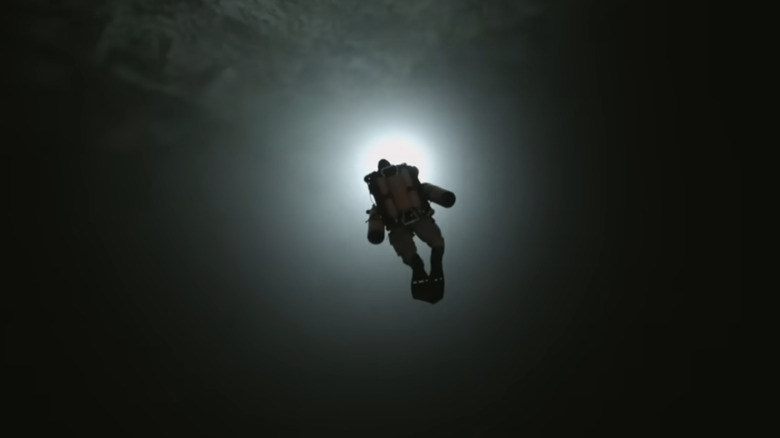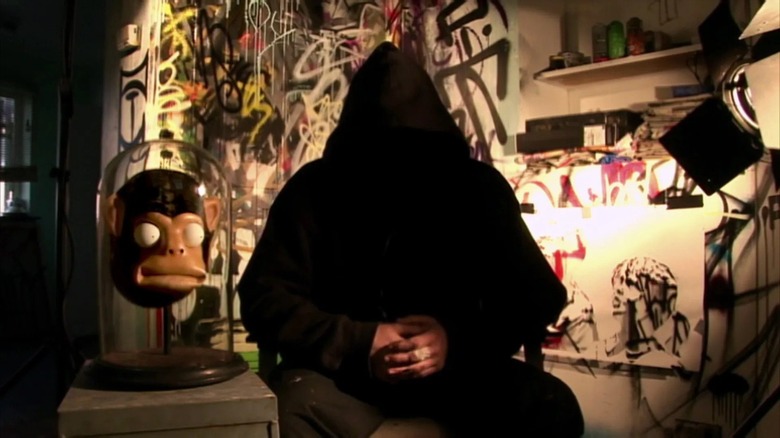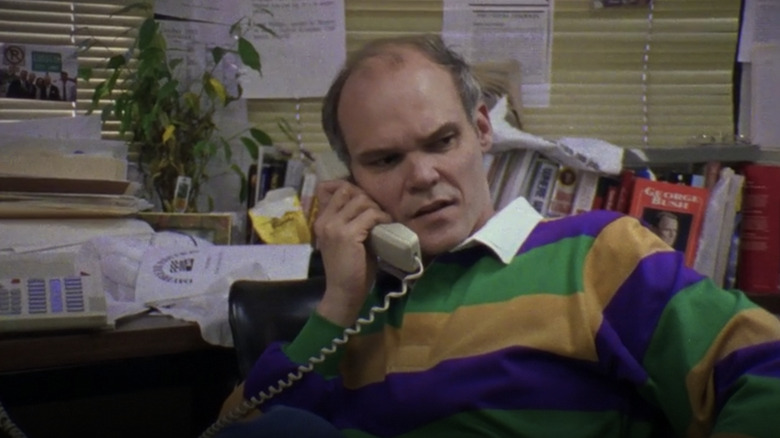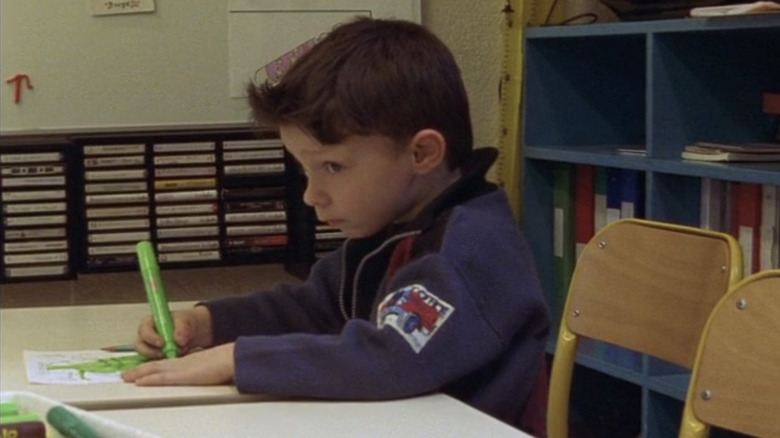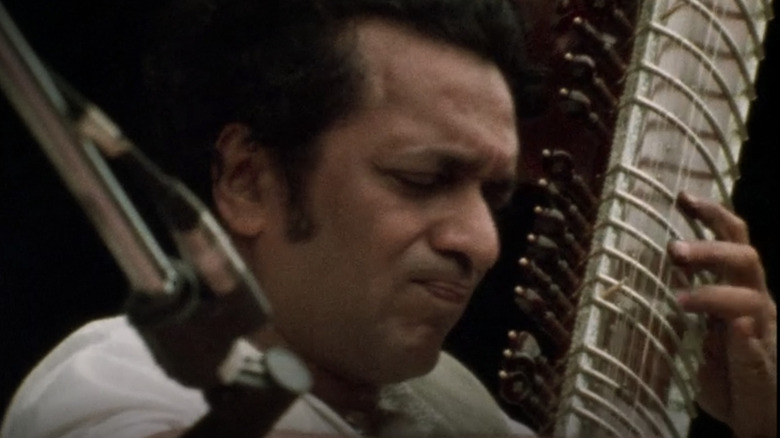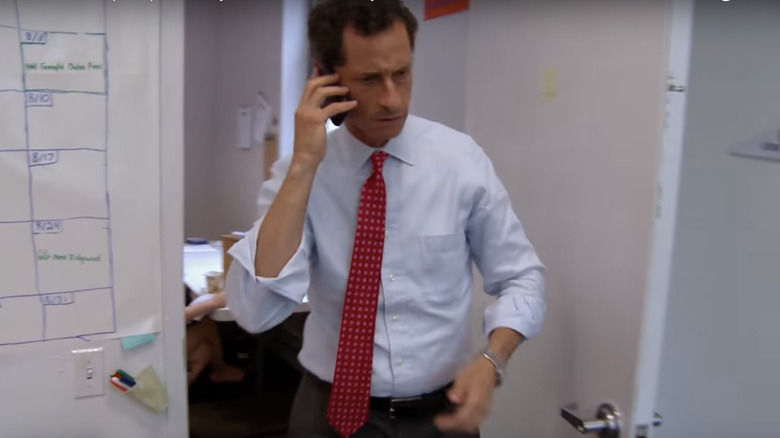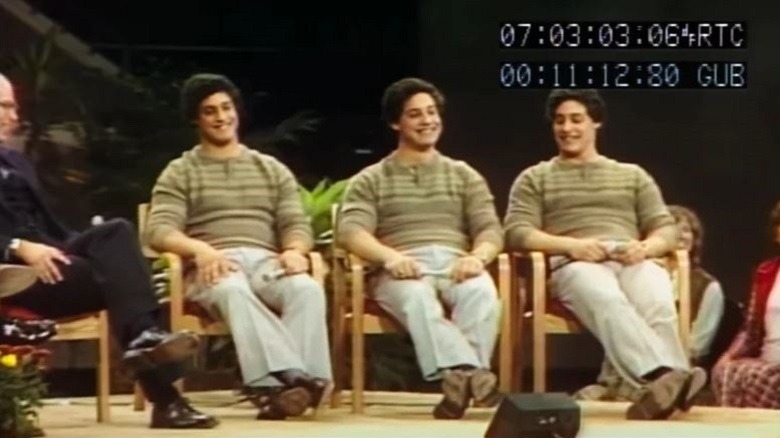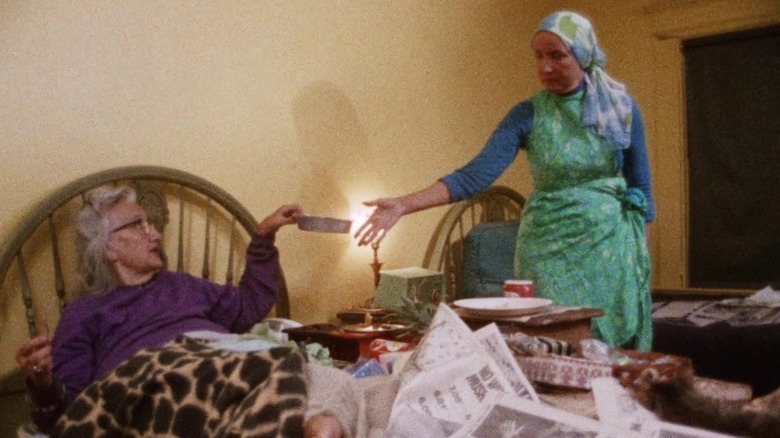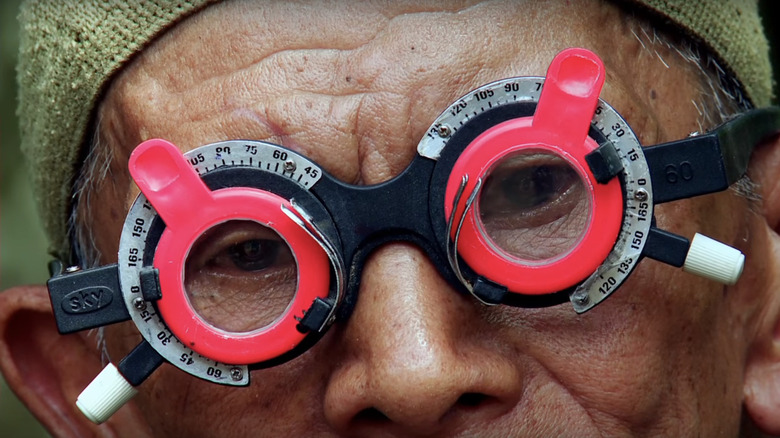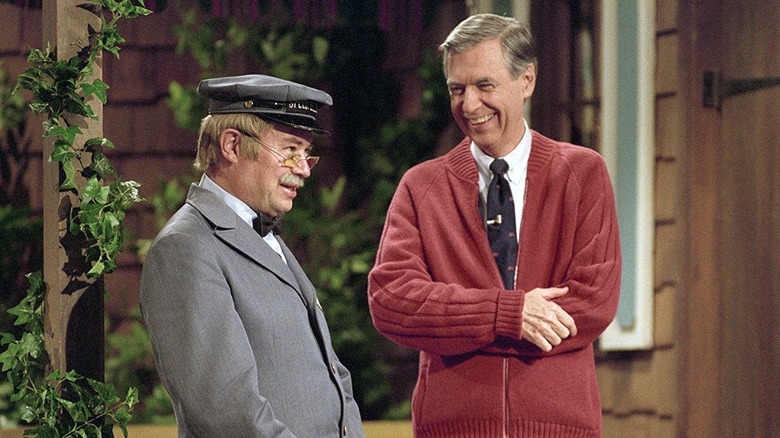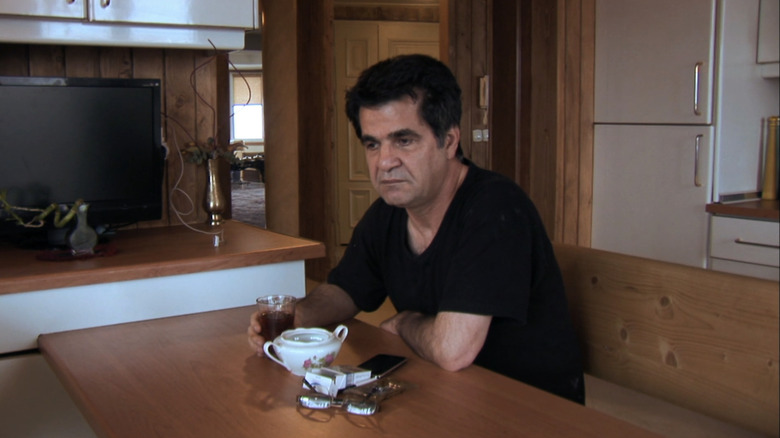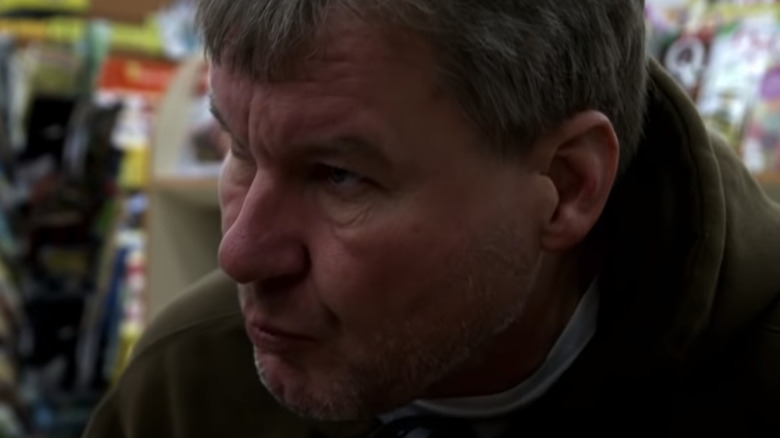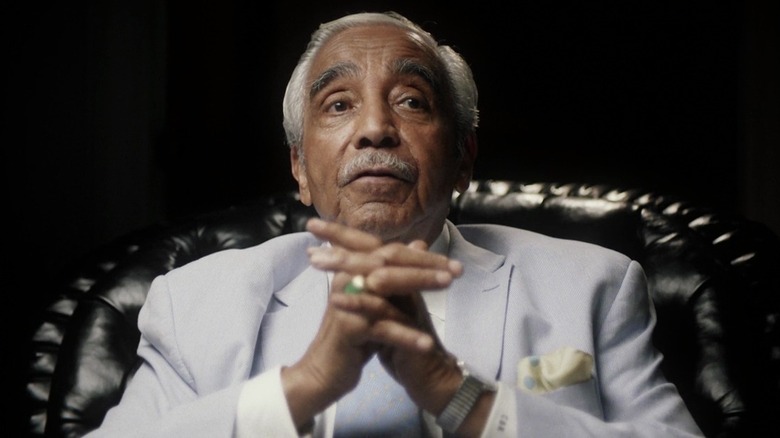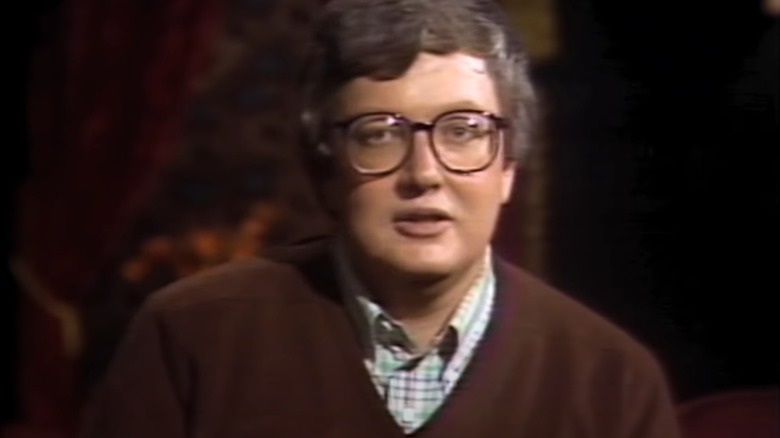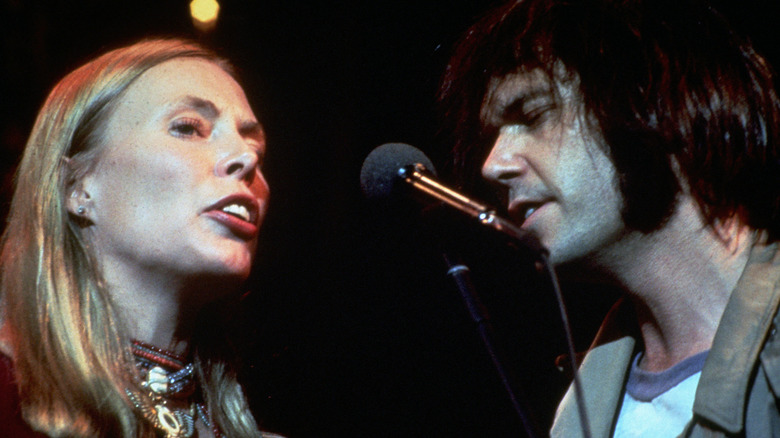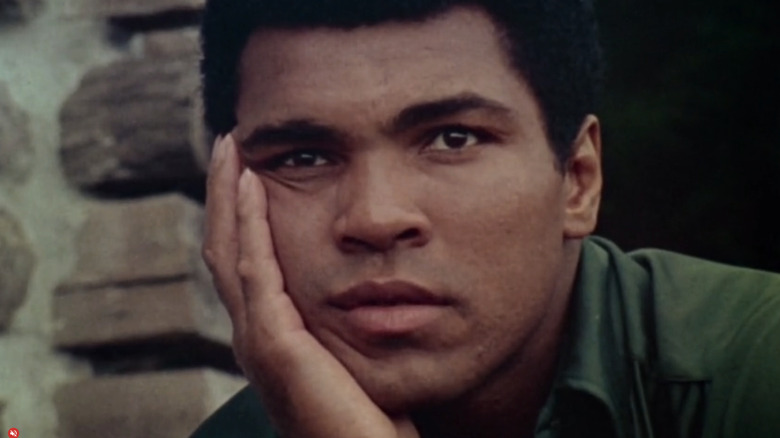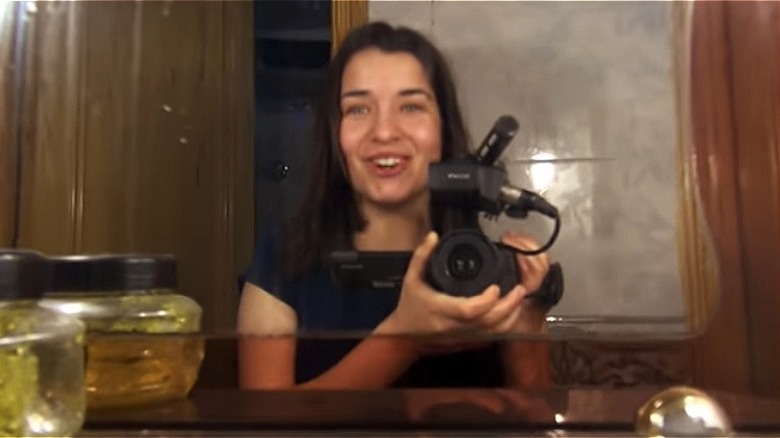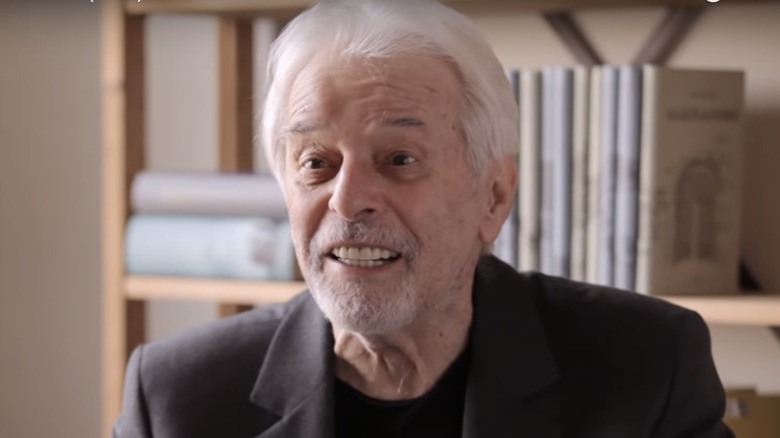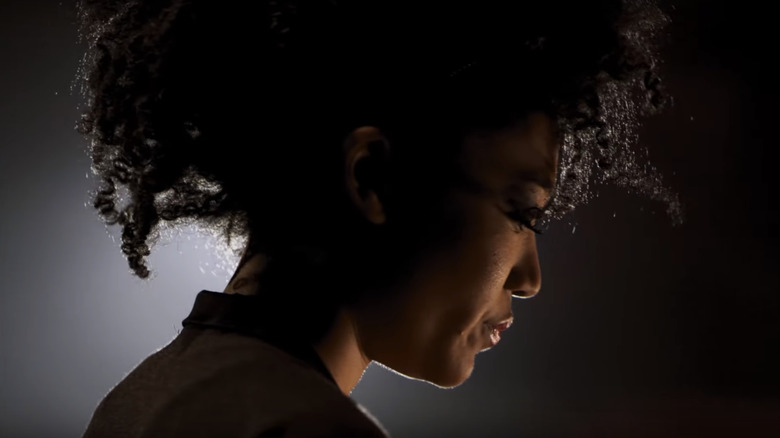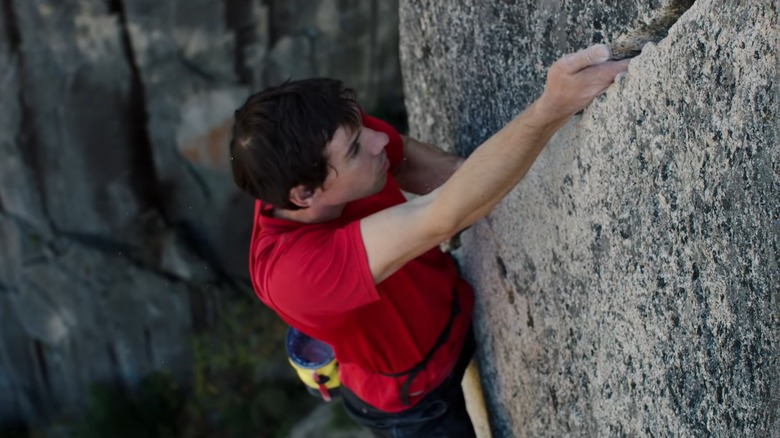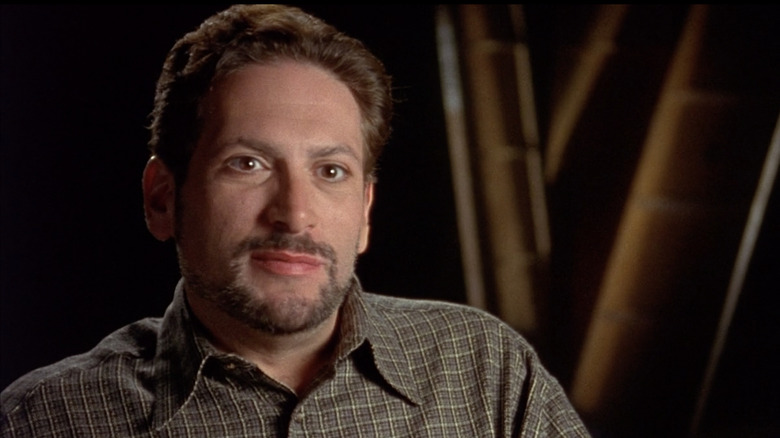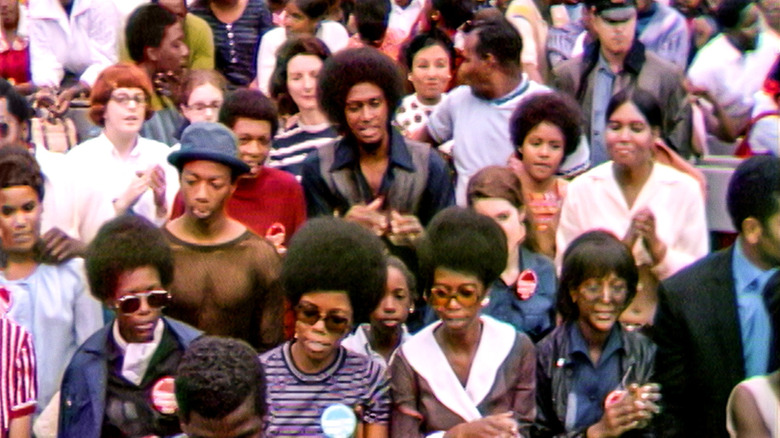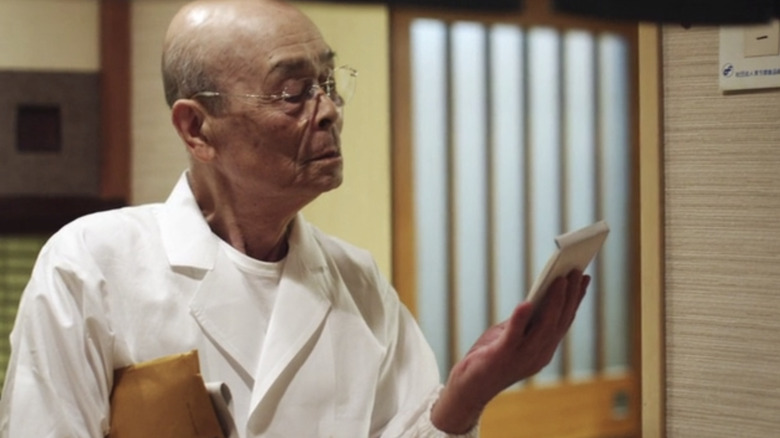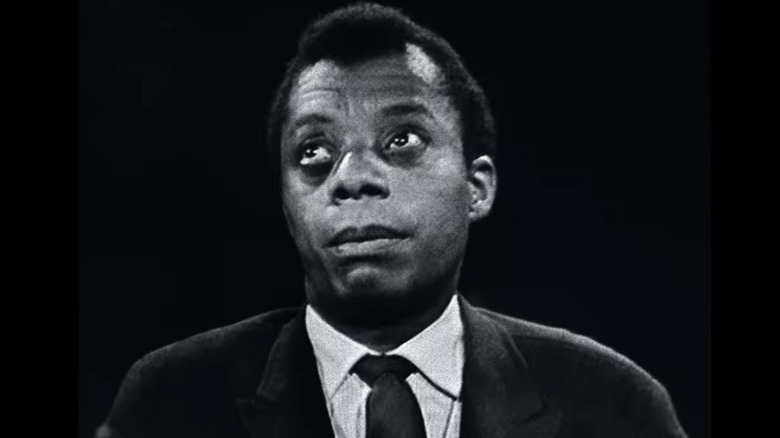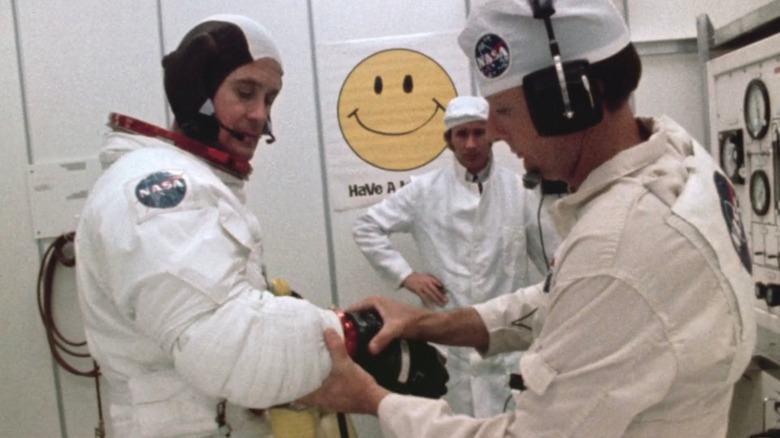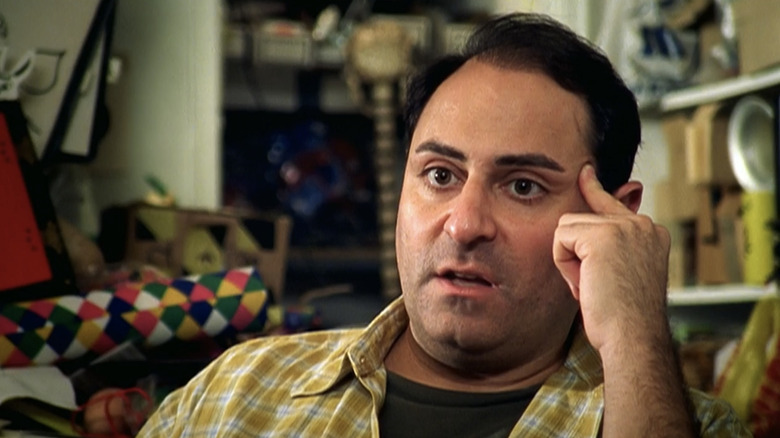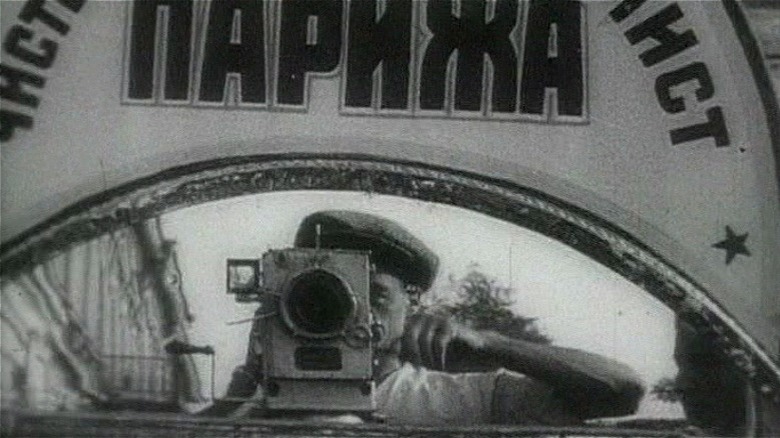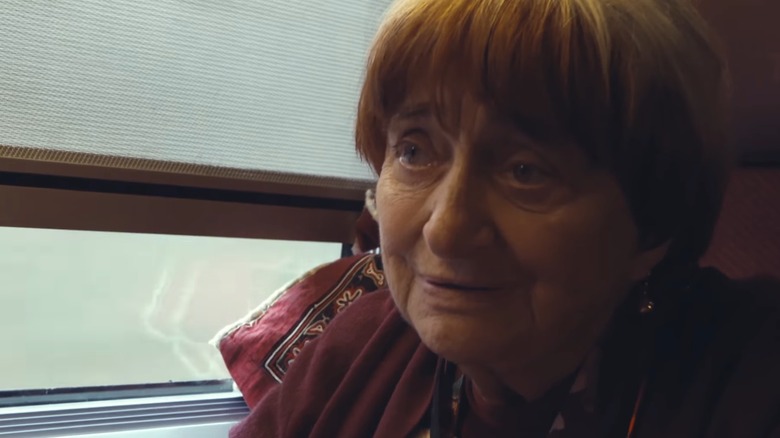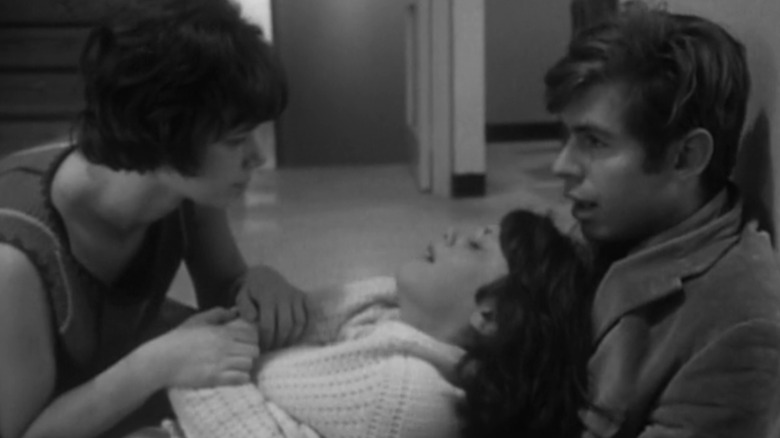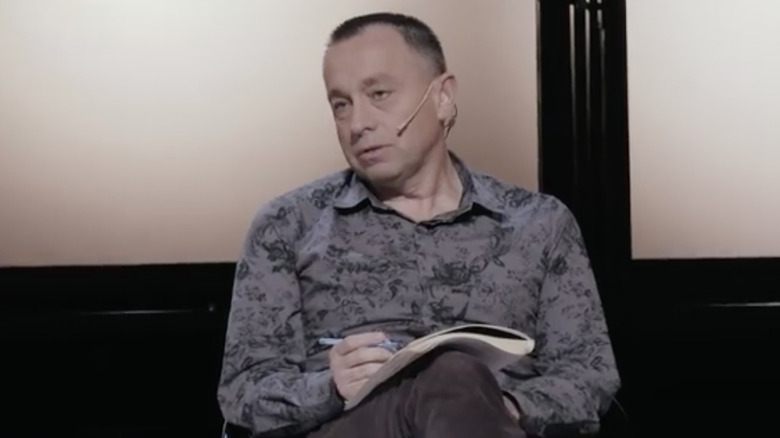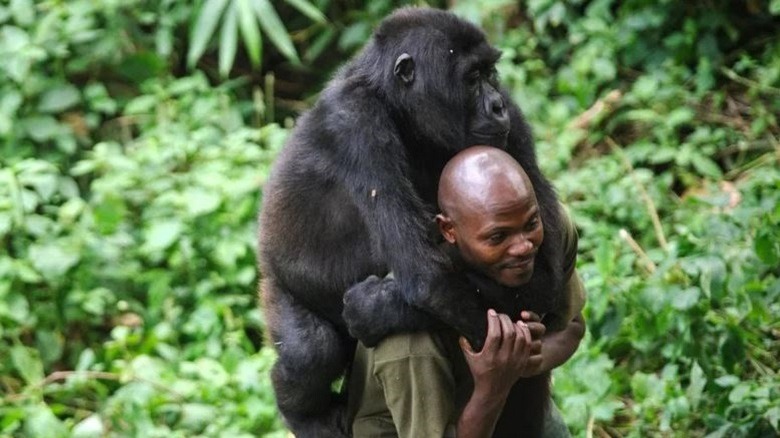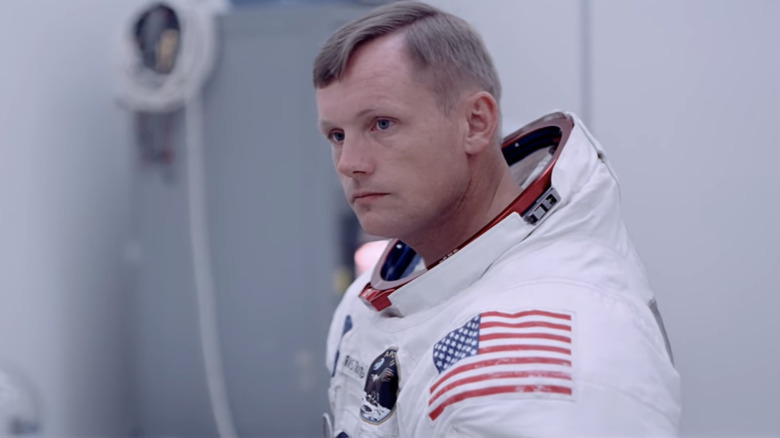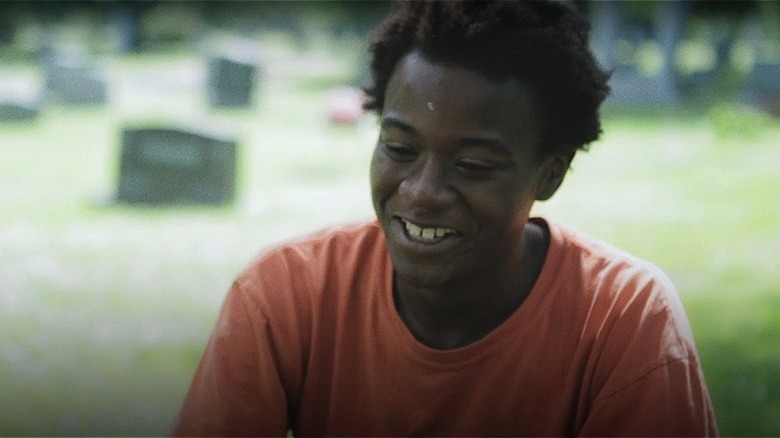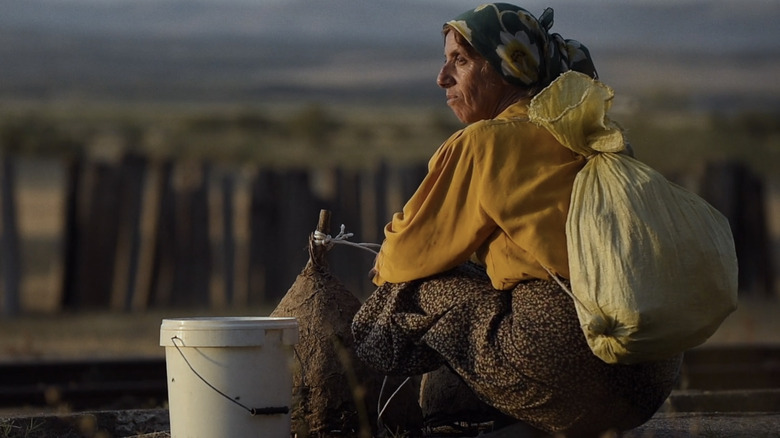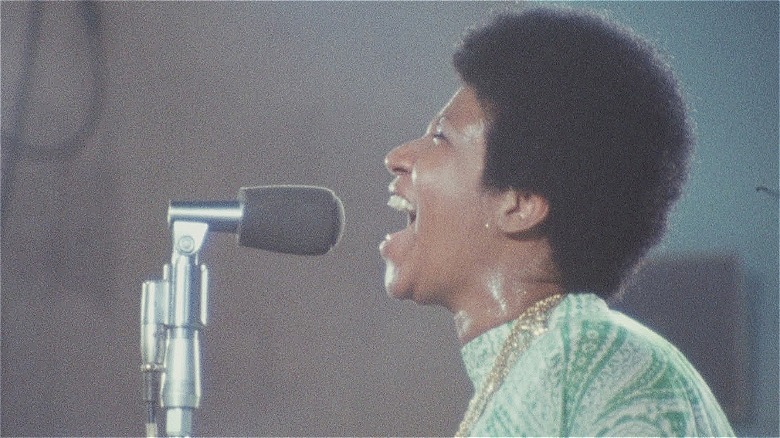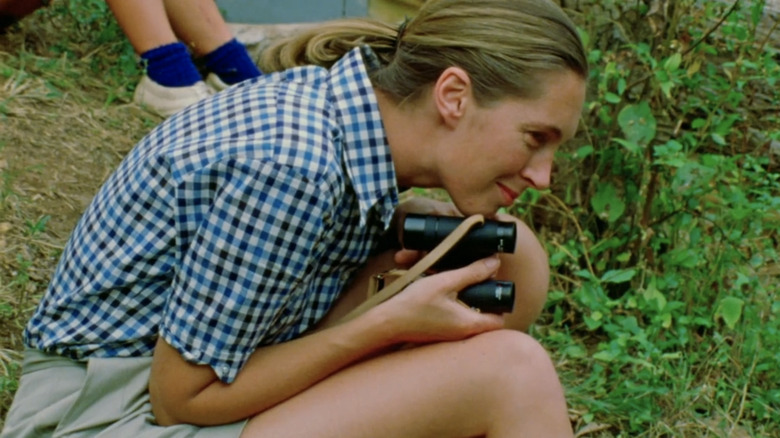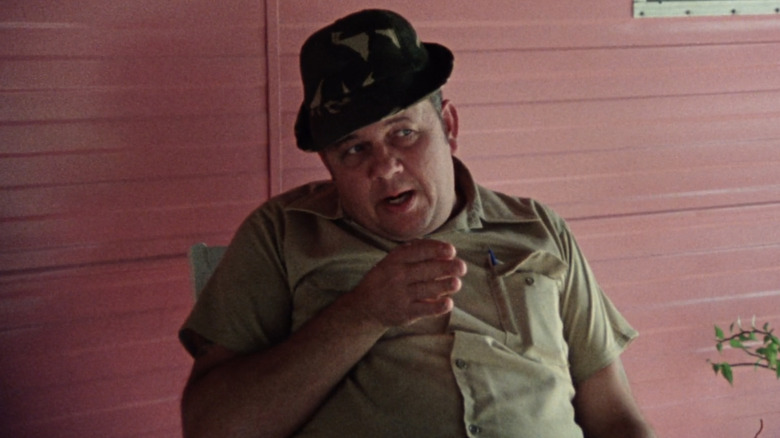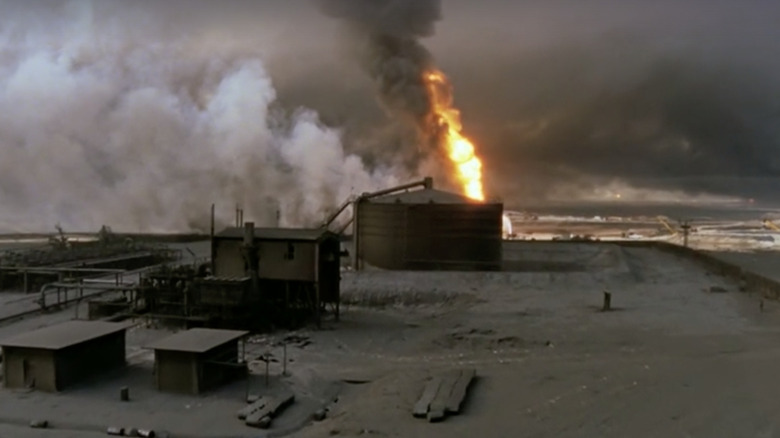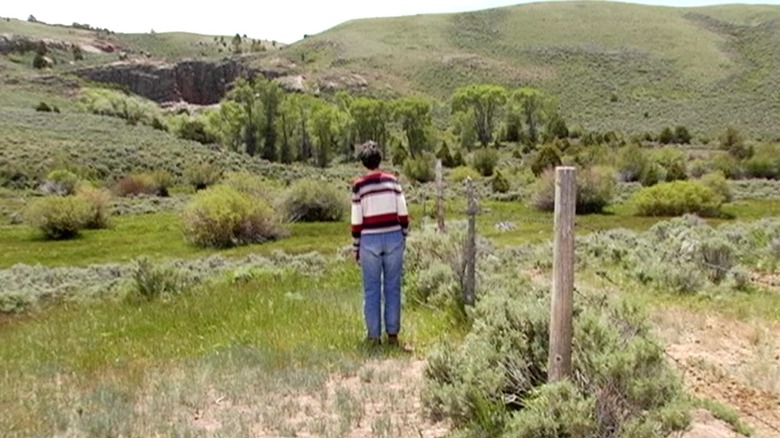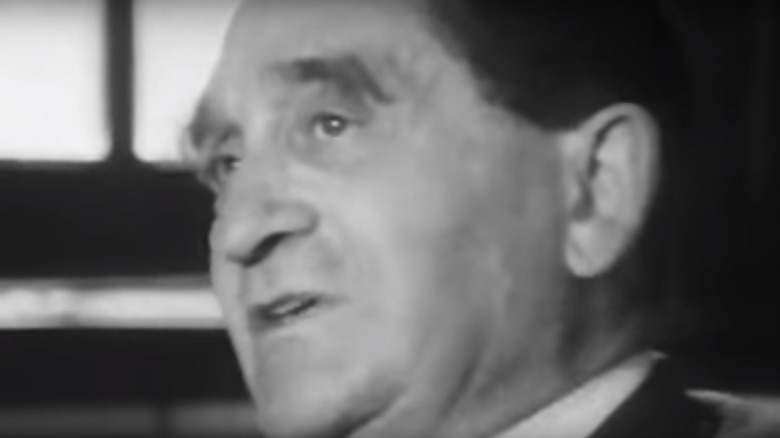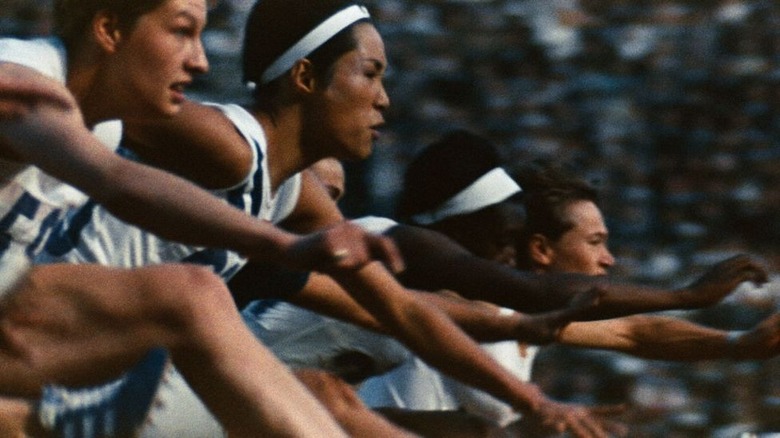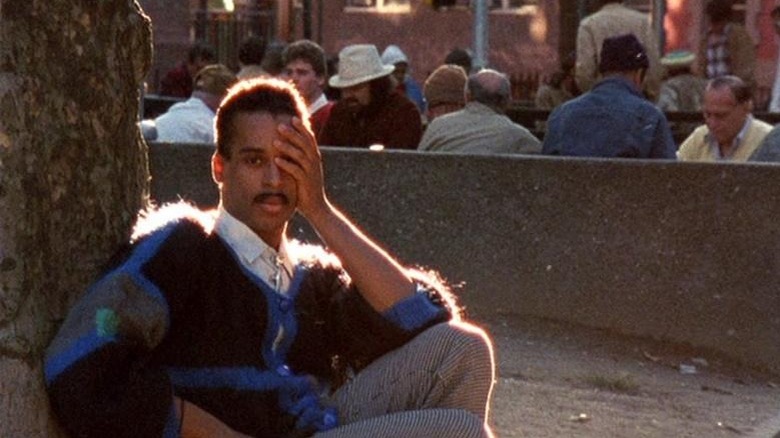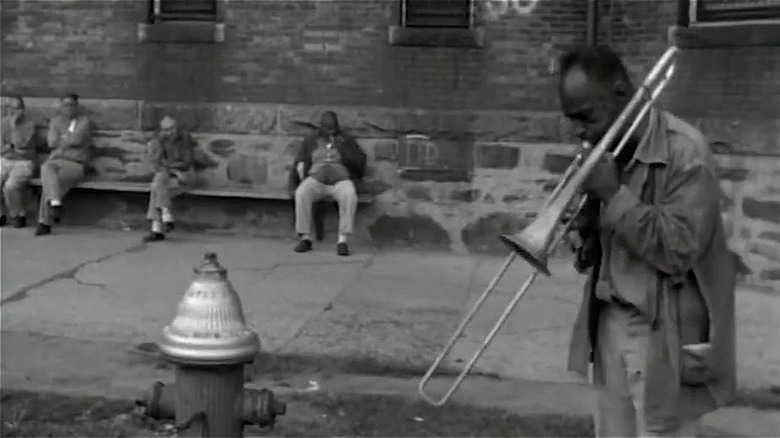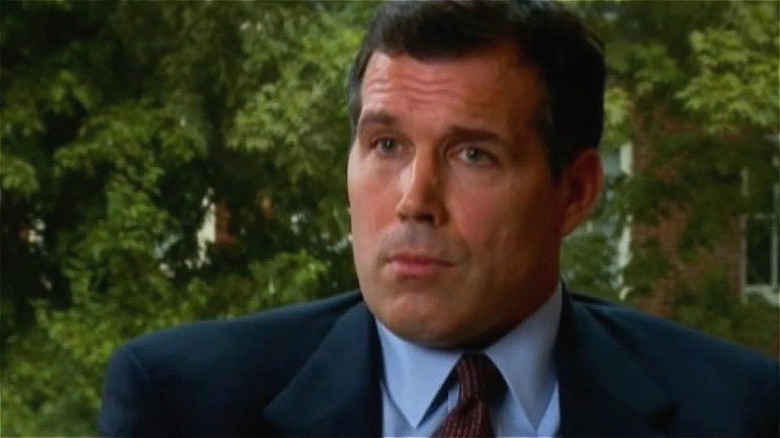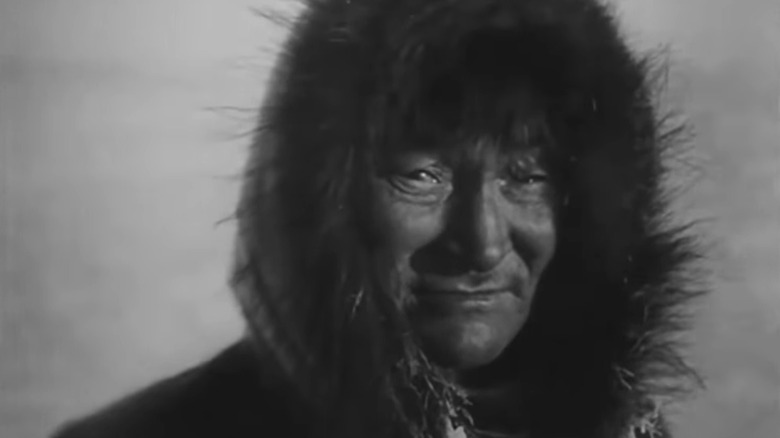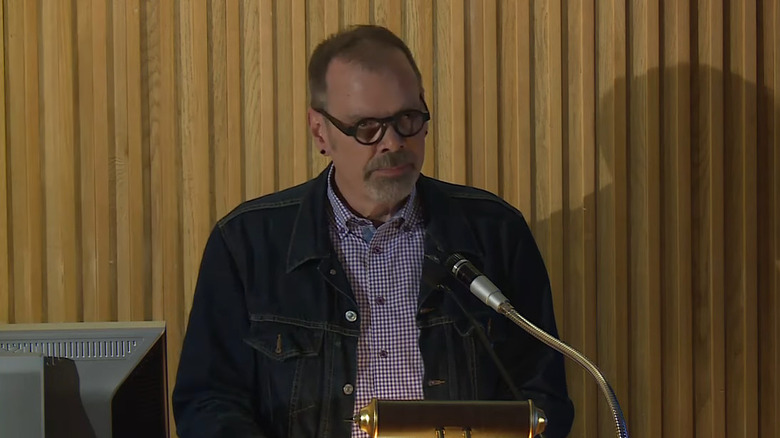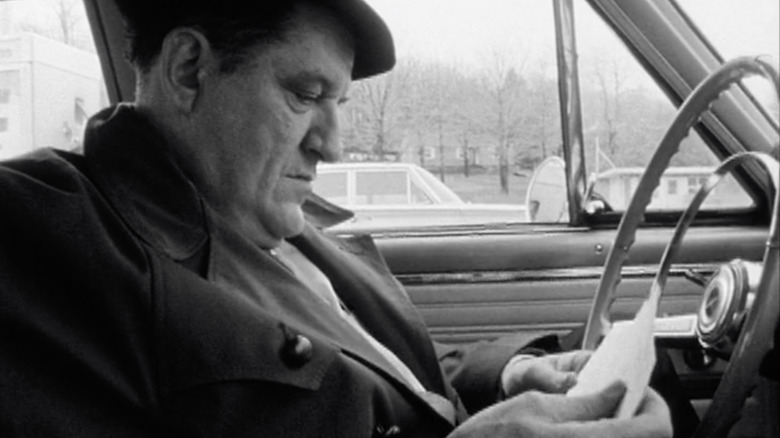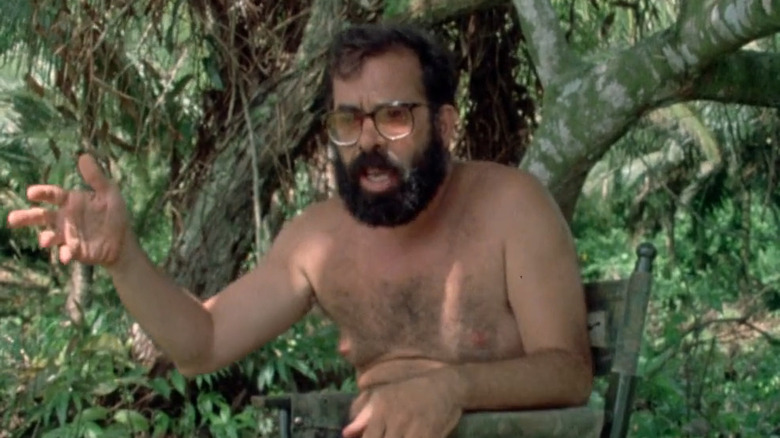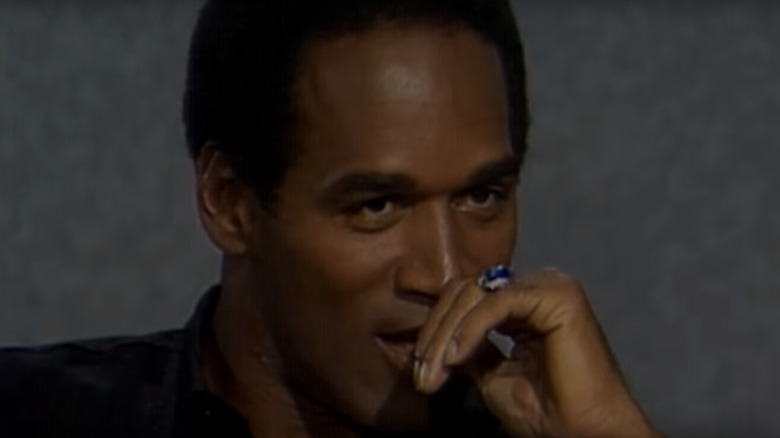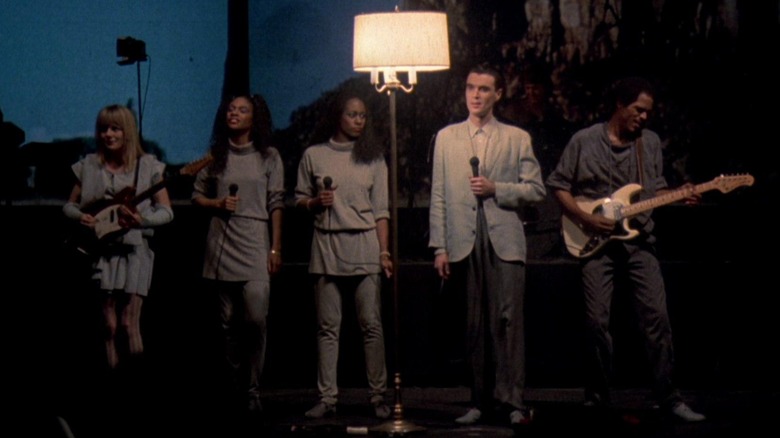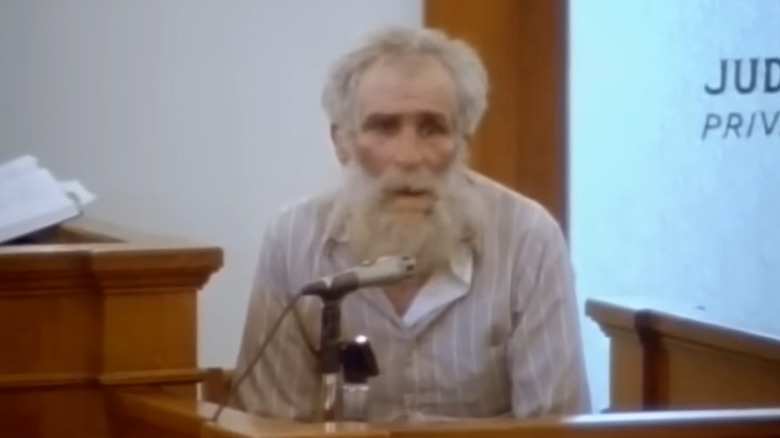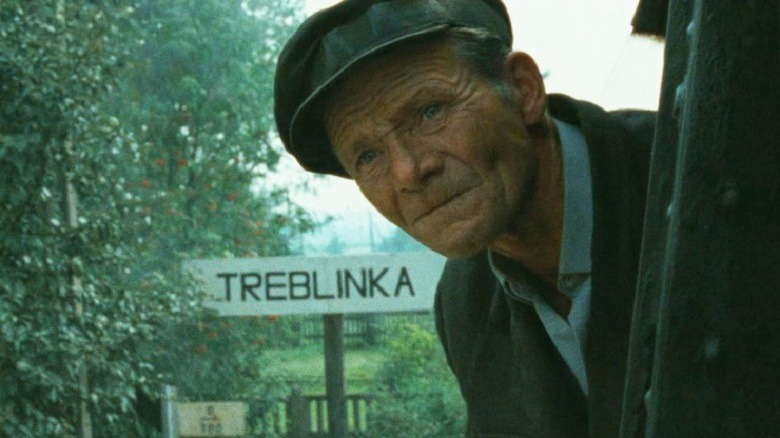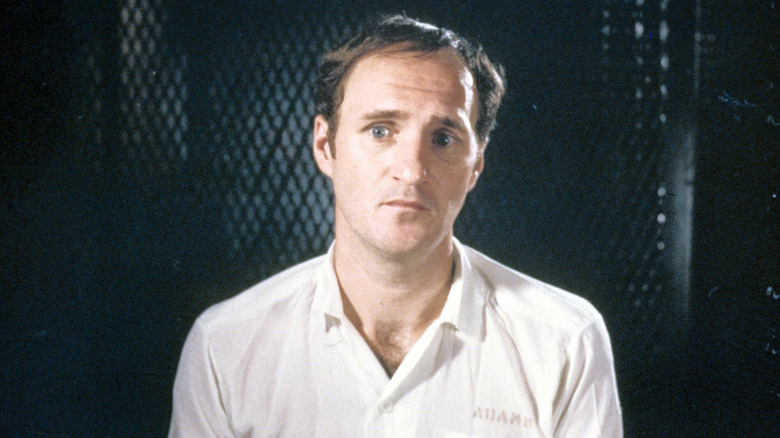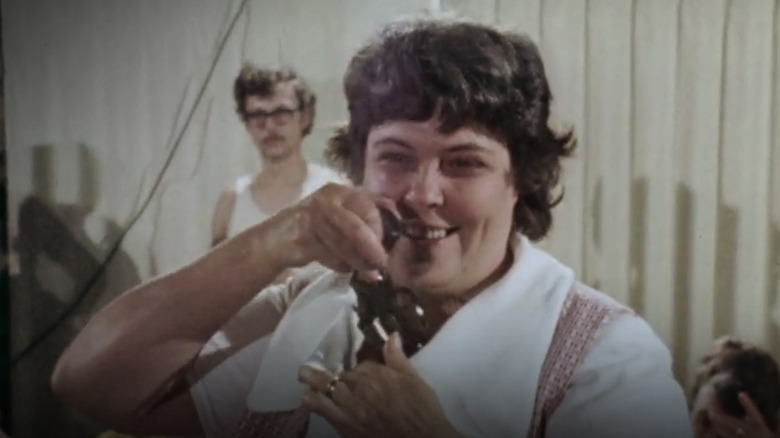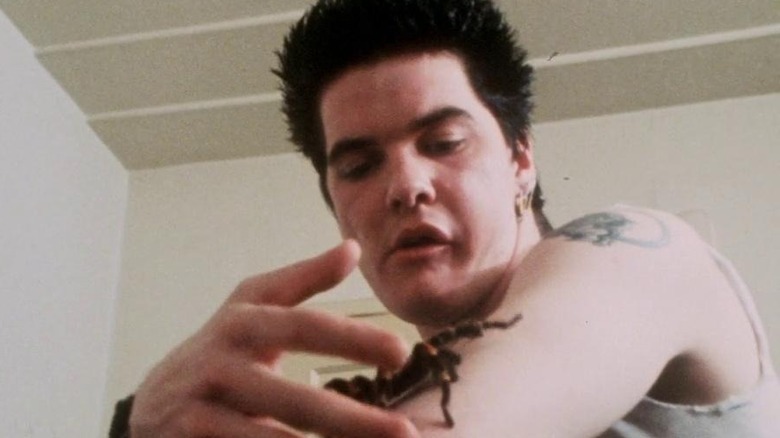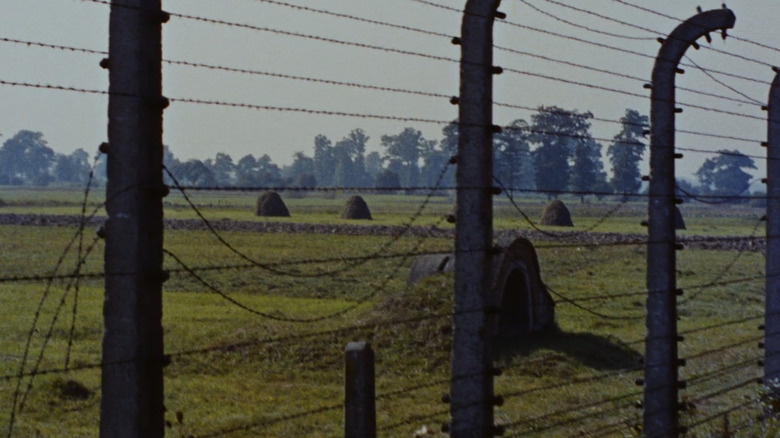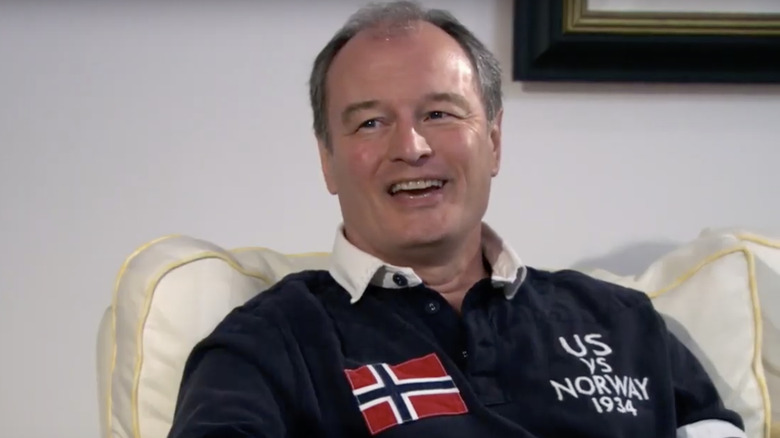97 Best Documentaries Of All Time Ranked
Documentaries can fulfill any number of purposes. Some of them advocate for specific positions, delivering passionate and even polemical arguments for their cause. Some seek to tell an intrinsically interesting story, and some portray specific corners of life or culture. And they're as varied in style as they are in content. Direct interviews, voiceovers, asynchronous footage without explanations, reenactments, animation — the sheer breadth and depth of the field made assembling this list a definite challenge, but we did our best to round up the all-time best documentaries from all across the spectrum. The one thing these have in common is that they're all excellent in their own particular ways.
Updated on May 11, 2022: Even as we're writing this, new documentaries are being released, so it's our goal to make sure that we only feature the best of the best. We'll update this article periodically to account for any new hits or recently rediscovered gems — films that will make you learn something, feel something, or both.
97. Memory for Max, Claire, Ida and Company
"Memory for Max, Claire, Ida and Company" offers a quiet study of life in a Canadian assisted living home for people with dementia. All it does is show how residents like Max, Claire, and Ida live and how their caretakers try — sometimes in vain and sometimes counterproductively but almost always compassionately — to help them find peace, clarity, daily happiness, and stability. It may be a futile struggle, but it's an important one. Acknowledging the humanity here matters. And it's something that the movie itself excels at. This can be hard to watch, especially if you've had these issues in your family, but it also offers a strange kind of comfort.
-
Director: Allan King
-
Year: 2005
-
Runtime: 112 minutes
-
Rating: NR
96. The Inland Sea
The elegiac "Inland Sea" is a travelogue of a vanishing way of life. It blends one man's memoir and account of his travels around Japan's Inland Sea with beautiful images filmed 20 years later. This is a trip that's about more than just scenery — though the scenery is indeed hauntingly lovely. It's also about leper colonies, calligraphy, religion, nationality, Sinatra, and just about everything under the sun. This is as peaceful and immersive an experience as you'll ever get at the movies.
-
Director: Lucille Carra
-
Year: 1992
-
Runtime: 57 minutes
-
Rating: NR
95. Garlic Is as Good as Ten Mothers
One of the best food movies ever made, "Garlic Is as Good as Ten Mothers" is an exuberant, irresistible look at, well, garlic. The film delves into the annual Gilroy Garlic Festival — which you'll soon want to attend — and also interviews a ton of garlic-lovers. With sumptuous cooking footage, fascinating stories, and even an unbelievably catchy folk song, the movie sells the glories of garlic and, even more significantly, the unbridled fun of community and a sense of shared joy.
-
Director: Les Blank
-
Year: 1980
-
Runtime: 51 minutes
-
Rating: NR
94. The Children Were Watching
An invaluable and eye-opening look at school desegregation in New Orleans, "The Children Were Watching" narrows its focus to a single parish but also encompasses how prejudices — and, thankfully, principles — can get passed down from generation to generation. The camera mercilessly lingers on people spewing racist invective in front of children, even screaming it at them, and invites you to think about the children taking all that in. This was 1961. Many of these children are still around, and "The Children Were Watching" invites you to wonder what they've taught their own kids since. Luckily, we also see examples that provide counterbalance and hope. "The Children Were Watching" is short, but it has an enormous impact.
-
Directors: Robert Drew and Richard Leacock
-
Year: 1961
-
Runtime: 25 minutes
-
Rating: NR
-
Rotten Tomatoes Score: N/A
93. The Gleaners and I
"The Gleaners and I" opens up a lovely and seemingly bottomless world: the gleaning subculture of France. Traditionally, gleaning means gathering leftover crops from fields, taking whatever is damaged or too marginal to be collected by the growers themselves. This documentary, however, shows how the meaning has expanded to include other kinds of gleaning — collecting scraps to make art, dumpster-diving, picking up oysters, and more. The right to glean (with certain restrictions) is protected by French law, and the legal aspects are part of the story as well. Whether the gleaners harvest the leavings from thriftiness, enterprise, creative utility, or sheer desperation, they're part of a longstanding and fascinating tradition.
-
Director: Agnès Varda
-
Year: 2000
-
Runtime: 82 minutes
-
Rating: NR
92. Always for Pleasure
Enjoy a sliver of New Orleans culture with "Always for Pleasure," a vibrant documentary that offers the viewer a brief but deep dive into the city's musical and culinary traditions. It's a perfect bit of tourism, especially as a window into pre-Katrina traditions. You get interviews with prominent local musicians, an example of a jazz funeral, and a crawfish boil that serves up not just food but a strong sense of community. And throughout it all, "Always for Pleasure" channels an incredible sense of joy and curiosity.
-
Director: Les Blank
-
Year: 1978
-
Runtime: 58 minutes
-
Rating: NR
91. Let There Be Light
John Huston's "Let There Be Light" offers a moving look at post-traumatic stress disorder in World War II veterans. The condition was not well-understood at the time, and part of what makes "Let There Be Light" so haunting is how it shows how common this kind of psychological suffering really was. In fact, even though the film ends on a healing note, the Army brass who'd commissioned the work wound up shelving it. Why? Well, it wasn't as reassuring as the higher-ups had hoped. The damage and vulnerability displayed here are too real and immediate to be neatly wrapped up with everyone's worries resolved. That may have made it subpar propaganda, but it makes it a beautiful film. And we're glad it finally saw the light of day.
-
Director: John Huston
-
Year: 1946
-
Runtime: 59 minutes
-
Rating: NR
90. F for Fake
An unconventional documentary poking at the limits of both truth and lies, "F for Fake" offers a rare chance to spend some time with Orson Welles' impressive mind. Welles focuses on famously creative and convincing liars — an art forger and a "biographer" who invented his material. But their deceptions, once revealed, are clear, and it's easy to condemn them. Welles is also interested in the fuzzier cases of things like stage magic, misleading tactics in fiction, "resumé lies," and more. It's a provocative and intellectually exciting look at questions about art, truth, legacy, and morality.
-
Director: Orson Welles
-
Year: 1973
-
Runtime: 88 minutes
-
Rating: PG
89. Leviathan
Harvard's Sensory Ethnography Lab seeks to produce evocative cinema that also serves as in-depth studies of particular worlds. And "Leviathan" is one of their best — love it or hate it, it's arguably the pinnacle of its form. It plunges the viewer into the world of commercial fishing, but it does it in an unconventional way. Forget about interviews. "Leviathan" gives you dizzying footage where it's hard to tell what's up and what's down or what's rain and what's ocean. It's a vivid hallucination with fish guts and blood, and it's unlikely that you'll ever see anything else that has the same effect.
-
Directors: Lucien Castaing-Taylor, Véréna Paravel
-
Year: 2012
-
Runtime: 87 minutes
-
Rating: NR
88. Koyaanisqatsi
"Koyaanisqatsi" means "life out of balance" in Hopi, and that's the concept that this experimental documentary seeks to present. Director Godfrey Reggio provides a dizzying, gorgeously filmed collage of life, with grand natural vistas continuously and troublingly transformed into human-mediated civilization, pollution, and overcrowding. Through editing and a sweeping score by Philip Glass, "Koyaanisqatsi" makes an eloquent argument that in separating ourselves from nature, we've hurt both our lives and the planet. But even when it's portraying the havoc of modern life, "Koyaanisqatsi" manages to be an immensely beautiful and almost hypnotic experience.
-
Director: Godfrey Reggio
-
Year: 1982
-
Runtime: 87 minutes
-
Rating: NR
87. Hearts and Minds
"Hearts and Minds" casts a deeply cynical eye on the Vietnam War, which — although it was officially supposed to have a strong interest in the people of South Vietnam — gets presented here as an enterprise rotted through with prejudice, ignorance, and criminality. It's only fair to note that the film has a definite slant, but its ire does give it a strong emotional pull. And while it largely leaves out other points of view, what it offers to substantiate its own is unforgettable. The movie's vivid centerpiece — contrasting a U.S. general explaining that Vietnamese people don't really value human life with a Vietnamese woman weeping uncontrollably at a funeral — has a brutal and unforgettable impact.
-
Director: Peter Davis
-
Year: 1974
-
Runtime: 112 minutes
-
Rating: R
86. Fyre
"Fyre" examines the legendary fiasco of the Fyre Festival, which advertised itself as a music festival that would be the pinnacle of luxury. Guests would stay in elegant villas, eat gourmet Bahamian seafood, explore a private island, and see famous musical acts. In reality, it was a scam, one put into motion by the deceptive and charismatic Billy McFarland and buoyed by Instagram influencers. Every element was either a lie or a shameless exaggeration — and it lasted up until the guests arrived, whereupon everything spiraled into complete chaos. The outlandish fraud is often darkly comedic, but "Fyre" also documents how much damage it caused, making the account as empathetic as it is entertaining.
-
Director: Chris Smith
-
Year: 2019
-
Runtime: 97 minutes
-
Rating: NR
85. High School
Intimate, energetic, and often vicious, "High School" chronicles ordinary life at a school in Philadelphia. The snippets of formal lessons often feel less likely to mold students' minds than the off-the-books ones designed to enforce the school's culture. Sometimes these lessons have a point, and at other times, they appall us. A student who can't afford a tux isn't allowed to come to prom in a suit because the school wants to enforce the concept of objective "formal attire," for one thing, and a teacher matter-of-factly critiques her students' bodies in front of the whole class. Both funnier and darker than you'd expect, this is a time capsule portrait of a particular environment ... but also something that feels truly universal. Yep, that's high school.
-
Director: Frederick Wiseman
-
Year: 1968
-
Runtime: 75 minutes
-
Rating: NR
84. Fast, Cheap and Out of Control
"Fast, Cheap and Out of Control" introduces us to a topiary gardener, a robot designer, a lion tamer, and a naked mole-rat specialist, and it lets them discuss their jobs at length, melding the associated images until all these disparate parts become a kind of glorious whole. The wildly different interview threads — and the evocative intermingling of images and themes — give viewers the ability to take away all kinds of different meanings for the film. But make no mistake: This isn't an impenetrable movie that's hard to understand. Even on a superficial level, it's filled with fascinating anecdotes and incredible images.
-
Director: Errol Morris
-
Year: 1997
-
Runtime: 80 minutes
-
Rating: PG
83. Grizzly Man
"Grizzly Man" focuses on the astonishing life and gruesome death of Timothy Treadwell, a nature lover who believed very strongly that he was "protecting" and "befriending" wild bears by approaching them. Ignoring the concerns of park rangers — who assured Treadwell that the bears were in no danger from poachers and warned him that his behavior was risky and dangerous on multiple levels — Treadwell continued to believe that he had a special relationship with these animals. He survived these actions for years ... but, almost inevitably, he and his girlfriend were mauled to death. "Grizzly Man" covers Treadwell's history and misconceptions while veering away from sensationalism, and certain moments — like director Werner Herzog showing himself listening to the audio of the deaths instead of actually airing it — have become iconic.
-
Director: Werner Herzog
-
Year: 2005
-
Runtime: 103 minutes
-
Rating: R
82. Gimme Shelter
"Gimme Shelter" is a documentary with the Rolling Stones, but it's not entirely about the Rolling Stones. The music, the celebrity factor — it all comes second to the horrifying train wreck of the Altamont Free Concert, where slipshod planning collided with alcohol and tumultuous emotions, ending in an incredible eruption of chaotic violence. In "Gimme Shelter," the concert feels apocalyptic, like a dividing line in history. And this record of it — of the chaos, of the muddled question of responsibility, of the uncertainty of what to do as things go permanently off the rails — is invaluable.
-
Directors: Albert Maysles, David Maysles, and Charlotte Zwerin
-
Year: 1970
-
Runtime: 90 minutes
-
Rating: PG
81. March of the Penguins
"March of the Penguins" has a warm and engrossing style, adorable penguins, and gorgeous nature photography, all of which makes it completely suitable to show to children. But adults shouldn't neglect this one either. We can't resist this lovely look at emperor penguins trying — with what often feels like heroic strength of mind — to raise their chicks in a harsh environment where death comes all too easily. The best breeding ground in Antarctica is one where there's no danger that the ground will melt away underneath you ... but that puts the penguins dangerously far away from the oceanic food source, necessitating the "march" to feed themselves, their mates, and their chicks. As a result, we wind up deeply invested in these penguins. After all, our hearts aren't made of stone.
-
Director: Luc Jacquet
-
Year: 2005
-
Runtime: 80 minutes
-
Rating: G
80. The Central Park Five
"The Central Park Five" zeroes in on the miscarriage of justice that led to five young men being falsely convicted for brutally assaulting a jogger in 1989. The case was a media firestorm, and a toxic combination of racism and pressure to get immediate results led to hasty convictions that were later dramatically overturned. Not only was another man eventually proven to have committed the crime, the documentary also suggests that he should have reasonably been a suspect at the time. The film's content makes it difficult viewing, but it's a necessary record of a prominent false conviction.
-
Directors: Ken Burns, Sarah Burns, and David McMahon
-
Year: 2012
-
Runtime: 119 minutes
-
Rating: NR
79. Stories We Tell
Actress-director Sarah Polley takes center stage and camera control in "Stories We Tell," an incisive documentary about her family history. She uncovers a startling truth: Her father is not actually her biological father. In exploring the affair that led to her birth, she also delves deep into her mother's life and the memories of her surviving family members. In the process, she asks interesting and potentially unresolvable questions about memory, truth, secrets, and whether or not any of this is really her — or our — business. It's thoughtful, meditative, and — especially in its use of fake home movies — stylistically fresh and impressive.
-
Director: Sarah Polley
-
Year: 2012
-
Runtime: 108 minutes
-
Rating: PG-13
78. Dear Zachary
"Dear Zachary" will hit you like a sledgehammer. Filmmaker Kurt Kuenne decided to start making "Dear Zachary" after his lifelong friend, Andrew Bagby, was murdered by his ex-girlfriend, Shirley Jane Turner. He wanted Zachary, Andrew's infant son, to have some way to connect with his father. But while Kuenne was still shooting, events took an unbelievably horrific turn. The film then turns into an angry, grief-stricken look at this traumatic story and the effect of all this has on Bagby's parents. It's unlikely you'll be able to watch it without falling apart a little, but it's still essential viewing.
-
Director: Kurt Kuenne
-
Year: 2008
-
Runtime: 95 minutes
-
Rating: NR
77. The Imposter
True-crime documentaries seldom get as wild as "The Imposter," a thought-provoking and hard-to-believe look at how French conman Frédéric Bourdin, then in his early 20s, successfully posed as Nicholas Barclay, a significantly younger American boy who'd been missing for three years. He convinced both the FBI and the Barclays, who took Bourdin in, accepting him as their son and brother. But what Bourdin really that convincing, or was something else going on? That question stays up in the air because as hard as it is to believe, Bourdin convinced a lot of people of a lot of extremely out-there propositions. "The Imposter" implicitly asks what we'll be convinced of. What are you going to believe?
-
Director: Bart Layton
-
Year: 2012
-
Runtime: 95 minutes
-
Rating: R
76. Bowling for Columbine
Multi-layered, angry, and incredulous, "Bowling for Columbine" explores the tragic Columbine High School massacre from several different angles. Confrontational filmmaker Michael Moore touches on some of the more specious excuses offered for Columbine, like the shooters' fondness for Marilyn Manson, and instead focuses his attention on pervasive gun violence and a culture that he feels encourages fear and aggression. Moore is controversial, and his documentaries can attract criticism for both their tactics and polemical approaches. But there's no doubt that "Bowling for Columbine" is influential, passionate, and still timely.
-
Director: Michael Moore
-
Year: 2002
-
Runtime: 120 minutes
-
Rating: R
75. Burden of Dreams
Werner Herzog's "Fitzcarraldo" was one of the most terrifyingly ambitious movie projects ever — a film shot on location in the middle of the rainforest and crucially involving a scene of men pulling a full-sized ship up a hill. The production was beset by disease and literal physical attacks. And Les Blank, director of "Burden of Dreams," was there to capture it all. This behind-the-scenes film shows the price Herzog — and his team — paid for this kind of dizzying ambition and determination. Some catastrophe-filled making-of films are all about incompetence. That's not the case here. "Burden of Dreams" is instead about genius butting up against the boundaries of the sane and even the possible. It winds up feeling larger than life.
-
Director: Les Blank
-
Year: 1982
-
Runtime: 95 minutes
-
Rating: NR
74. The Queen of Versailles
When the 2008 recession happened, probably no one spent much time worrying about how it would affect the super-rich. And David and Jackie Siegel, who built an American Versailles — a home so elaborate and luxurious it only made sense to call it after one of the most opulent palaces of all time — definitely fall into that "super-rich" category. But "The Queen of Versailles" does a masterful job of making the Siegels strangely relatable. They're icons of excess, but they're also a recognizable couple struggling with sudden life upheaval. The film is sharp, empathetic, occasionally funny, and always interesting.
-
Director: Lauren Greenfield
-
Year: 2012
-
Runtime: 100 minutes
-
Rating: PG
73. Finding Vivian Maier
Vivian Maier was an incredibly skilled photographer who created extraordinary portraits of people she met simply by chance. Her work is masterful, but during her lifetime, she was essentially invisible, making her living only as a nanny and a housekeeper in Chicago. "Finding Vivian Maier" details how John Maloof, who co-directed the film, found Maier's work after her death. He knew genius when he saw it, and he brought Maier's photographs to the public eye and spearheaded a quest to learn her story. "Finding Vivian Maier" enthralls us as it details the results, introducing us to a woman who — even in the midst of her own documentary — remains elusive ... except through her art. The enigma is part of the charm.
-
Directors: John Maloof and Charlie Siskel
-
Year: 2013
-
Runtime: 83 minutes
-
Rating: NR
72. American Movie
Independent filmmaking is the subject of this smart, funny, and deeply felt ode. "American Movie" follows Mark Borchardt's attempt to pull together his short horror film "Coven" (eventually released to extremely uneven reviews) despite numerous setbacks. Borchardt struggles to get the money to make his movie, and even when he gets it, he doesn't have the industry connections to hire many professionals. And he himself may not even have the necessary talent — let alone the necessary stability. But his incredible persistence makes this a remarkable documentary, one that's both comedic and strangely inspirational.
-
Director: Chris Smith
-
Year: 1999
-
Runtime: 107 minutes
-
Rating: R
71. Crumb
Underground cartoonist R. Crumb gets his due in this vivid biographical documentary, which never shies away from either the weirdness or the darkness in his life. Crumb's cynicism, offbeat perspective, and sheer compulsive artistic production are all on display here. It's impossible not to see his talent and the originality of his mind, but it's entirely possible to feel some sense of horror or disgust. Whatever you feel about Crumb, he comes by his inclinations naturally. "Crumb" is a study not just of him but also of his family, especially brothers Maxon and Charles, who live even more marginal lives. This is a portrait of an artist in his own incredibly unique context, and it's simply unforgettable.
-
Director: Terry Zwigoff
-
Year: 1995
-
Runtime: 119 minutes
-
Rating: R
70. Woodlands Dark and Days Bewitched
"Woodlands Dark and Days Bewitched" offers a comprehensive tour through the world of cinematic folk horror, from its black-and-white precursors to founding films like "The Wicker Man," "Blood on Satan's Claw," and "Witchfinder General" to contemporary revival works like "The Witch" and "Midsommar." The film blends informative interviews with directors, writers, and scholars with haunting ballad performances and some pleasantly unsettling original art. It will leave viewers frantically writing down titles as they follow the subgenre's development and its international manifestations. Even at three hours plus, this still feels lively and light on its feet.
-
Director: Kier-La Janisse
-
Year: 2021
-
Runtime: 194 minutes
-
Rating: NR
69. Searching for Sugar Man
In 1990s Cape Town, elusive musician Sixto Rodriguez was a beloved icon of the anti-apartheid movement, but information on him was so scarce that his fans weren't even sure they should believe that he was really dead. "Searching for Sugar Man" details how devoted followers — especially record store owner "Sugar" Segerman — gradually unearthed the truth and found their hero. Inspirational documentaries can sometimes feel cheap, but this one never does, partly because it combines its quest with an intriguing biography and a sense of immediacy and the need for art.
-
Director: Malik Bendjelloul
-
Year: 2012
-
Runtime: 86 minutes
-
Rating: PG-13
68. Amy
A revealing look at the troubled life of singer Amy Winehouse, "Amy" is empathetic and beautifully crafted. It follows its subject from her childhood to her all-too-early death, showing both her considerable artistic high points and the trouble — drugs, alcohol, an eating disorder, and overpowering media attention — that dogged her heels. In the end, it offers a complex and nuanced portrait of a powerhouse performer and the horrible combination of addiction and celebrity culture that consumed her. It's a tragedy seen in moving close-up, and it familiarizes Amy Winehouse in a way that makes you desperately wish things had turned out differently.
-
Director: Asif Kapadia
-
Year: 2015
-
Runtime: 128 minutes
-
Rating: R
If you or anyone you know is struggling with addiction issues, help is available. Visit the Substance Abuse and Mental Health Services Administration website or contact SAMHSA's National Helpline at 1-800-662-HELP (4357).
67. Waltz with Bashir
The animated documentary "Waltz with Bashir" is a nuanced and powerful memoir of war and culpability. Filmmaker Ari Folman realizes that his own service in the Lebanon War is a complete blank to him, and he decides to do something about it. "Waltz with Bashir" is clear from the start that this work could be — depending on your standards — futile. The accounts Folman unearths might not be accurate, and the memories he "recovers" might not be true. But what Folman finds out still resonates with him, invoking both horror and a tremendous sense of guilt. What does it mean to only understand later that you were part of a massacre?
-
Director: Ari Folman
-
Year: 2008
-
Runtime: 90 minutes
-
Rating: R
66. The Times of Harvey Milk
Harvey Milk was an openly gay city official in San Francisco at a time when that seemed impossible. Charismatic, vibrant, and hopeful, Milk was a major voice for gay rights, and his presence was so powerful and memorable that he managed to stay a prominent and powerful figure even after his assassination. "The Times of Harvey Milk" is a fitting memorial to both the man himself and to his community's reaction to his life and death. Its footage makes it an invaluable historical record; its style makes it a lasting work of art.
-
Director: Rob Epstein
-
Year: 1984
-
Runtime: 87 minutes
-
Rating: NR
65. The Act of Killing
"The Act of Killing" will sear itself into your brain. This documentary takes an unusual and all-too-revealing angle on the mass killings in Indonesia. It offers one of the most prolific killers, Anwar Congo — a gangster, death squad leader, and revered "national hero" — the chance to restage his crimes as mini-movies. Anwar cheerfully reenacts his murders as Westerns and musicals, but his sangfroid takes a hit when he's asked to finally play the role of one of his victims instead. Meanwhile, the film shows others weighing their feelings of guilt and self-protective worry. This will get you inside a state-sanctioned killer's head like nothing else, but what makes this a must-see documentary is the way it forces a murderer to eventually see the point of view of his victims.
-
Director: Joshua Oppenheimer
-
Year: 2012
-
Runtime: 122 minutes
-
Rating: NR
64. The Rescue
"The Rescue" is working with inherently dramatic subject matter — the Tham Luang cave rescue of 2018, where divers, rescue workers, and governmental representatives all pulled together to retrieve a junior soccer team from a flooded cave system. But the film doesn't just coast on good material. This documentary is engaging and well-paced, explaining its situation clearly and in a way that builds both tension and dread, even when you already know the outcome. It focuses on the cave divers, exploring their devotion to their unusual and dangerous passion, which means it illuminates a hobby at the same time it's providing a deeper understanding of a major event.
-
Directors: Elizabeth Chai Vasarhelyi and Jimmy Chin
-
Year: 2021
-
Runtime: 107 minutes
-
Rating: PG
63. Exit Through the Gift Shop
Subversive anonymous street artist Banksy gets both behind and in front of the camera for this intriguing look at both street art in general and one unlikely artist in particular: Thierry Guetta, a French man living in L.A. who comes to the scene fairly late in life. Guetta starts documenting the production of street art, which is how he — against all odds — meets the usually withdrawn Banksy. The two become friends, but they also mutually use each other for the sake of art and publicity. Ultimately, Guetta winds up a startling success ... but Banksy is the one who gets the film, a documentary masterpiece that's unusual, rich, and surprising.
-
Director: Banksy
-
Year: 2010
-
Runtime: 87 minutes
-
Rating: R
62. The War Room
"The War Room" offers a rare insider perspective on running a national campaign: Bill Clinton's successful presidential bid in 1992. Clinton himself isn't as significant in the documentary as his primary strategists, James Carville and George Stephanopoulos, because this is all about the behind-the-scenes work in selling a candidate. This is how the sausage gets made, but in this particular case, it's more fresh than cynical. And if you like looking behind the curtain, it doesn't get any more fascinating than this.
-
Directors: Chris Hegedus and D.A. Pennebaker
-
Year: 1993
-
Runtime: 94 minutes
-
Rating: PG
61. Citizenfour
"Citizenfour" provides a gripping and powerful account of Edward Snowden, who revealed countless NSA documents. Some considered him a heroic whistleblower, while others believed him to be a dangerous traitor. The revelations, in any case, were major ones, showing the breadth of intelligence efforts directed at American citizens and America's allies. "Citizenfour" details Snowden's initial leaks and his subsequent efforts to find refuge and avoid extradition and prosecution. Meanwhile, filmmaker Laura Poitras and journalist Glenn Greenwald likewise face consequences and sift through the new information and its profound ramifications. Watching real-world events of this magnitude unfold on-screen is thrilling, especially in the context of a film that's all about secrets being revealed.
-
Director: Laura Poitras
-
Year: 2014
-
Runtime: 114 minutes
-
Rating: R
60. To Be and to Have
If you've ever taken a French class, there's a chance you've seen "To Be and to Have." This gentle documentary's simplicity and warmth make it a good choice for class viewing, but it's more than just a teaching tool, even if it is about a teacher and his students. It's a low-key look at a small village school with only one class and one teacher, and it simply follows its characters throughout the year, tracing the children's development and studying the educational process. It's both relaxing and touching.
-
Director: Nicolas Philibert
-
Year: 2002
-
Runtime: 105 minutes
-
Rating: NR
59. Monterey Pop
"Monterey Pop" is a historic concert film. Most of us weren't there, many of us couldn't have been there, but thankfully, this movie exists to capture the thrilling experience for us in pitch-perfect detail. The Monterey Pop Festival rounded up some of the biggest names in the business, and it's almost unbelievable to get a vicarious seat at the concert. Even if the experience is, understandably, edited for length, you still get the Mamas & the Papas, the Who, Otis Redding, Jefferson Airplane, Ravi Shankar, Simon & Garfunkel, and more. It's an invaluable bit of musical history.
-
Director: D.A. Pennebaker
-
Year: 1968
-
Runtime: 79 minutes
-
Rating: NR
58. Weiner
An irresistible blend of scandal and strategy, "Weiner" covers Anthony Weiner's efforts to get elected as mayor of New York. He'd served multiple terms as a successful and even beloved congressman before a humiliating obscene photo incident led to him offering his resignation. Now, filmmakers follow him as he attempts to reboot his career. Should Weiner get a second chance in politics? How much does private behavior have to do with public service? And what happens when a second and even more serious revelation comes to light?
-
Directors: Josh Kriegman and Elyse Steinberg
-
Year: 2016
-
Runtime: 96 minutes
-
Rating: R
57. Three Identical Strangers
"Three Identical Strangers" excels at following a fascinating story not only through twists and turns of plot but through huge changes in tone. This starts out as a funny and heartwarming look at how three identical triplets, separated at birth and adopted out, found each other in college. They're thrilled to discover each other, and they're instantly close and a national sensation, cast in Madonna videos and beloved by the whole talk show circuit. But the movie soon turns towards the darker underbelly of the story: Why did the adoption agency never tell any of the parents about the other brothers? Well, the answer and its ramifications are quite dark indeed.
-
Director: Tim Wardle
-
Year: 2018
-
Runtime: 96 minutes
-
Rating: PG-13
56. Grey Gardens
In a moldering mansion in New York, a mother and daughter are stalled in a perpetual decline. "Big Edie" and "Little Edie" came from old money, but for decades now, they've lived on a limited income and in near-total isolation. And under those circumstances, they've grown strange. The masterful part of "Grey Gardens" is how it presents the squalor, tragedy, and strength of their lives, drawing viewers into empathizing with the Beales and even understanding them. This straightforward account shows that no matter how far away from the norm the Beales' lives may be, they're still within reach.
-
Director: David Maysles, Albert Maysles, Ellen Hovde, Muffie Meyer
-
Year: 1975
-
Runtime: 95 minutes
-
Rating: PG
55. The Look of Silence
As strong and devastating as its predecessor, "The Act of Killing," follow-up film "The Look of Silence" concentrates on the aftermath of the mass killings in Indonesia in the mid-'60s. Director Joshua Oppenheimer looks at the way both survivors and perpetrators live with what happened — how they understand the atrocities they've either suffered or committed. "The Look of Silence" takes a specific, singular vantage point: a survivor now able to confront his brother's murderers. He's an optometrist giving them eye exams, often listening to them brag in lurid and horrifying detail about what they've done. The situation feels surreal, but one of the many powerful aspects of "The Look of Silence" is how it shows that this surrealism is simply part of life for everyone living in the shadow of this terrible history.
-
Director: Joshua Oppenheimer
-
Year: 2014
-
Runtime: 99 minutes
-
Rating: PG-13
54. Won't You Be My Neighbor?
Biographical documentaries don't get any more heartwarming and inspirational than "Won't You Be My Neighbor?" It's a study of Fred Rogers — a man who proved that "heartwarming" and "inspirational" don't have to be cheap terms that are all too easily used. TV's Mr. Rogers was the embodiment of intelligent, thoughtful compassion both on and off the small screen, and while you may wait for some darkness to emerge, it never does. Rogers was human and therefore not completely devoid of flaws or blind spots, but he was also, it seems, about as genuinely good as anyone can reasonably get. And the difference that he made to people through his life and work is incalculable. This is a feel-good documentary in its purest and most elevated form.
-
Director: Morgan Neville
-
Year: 2018
-
Runtime: 94 minutes
-
Rating: PG-13
53. This Is Not a Film
"This Is Not a Film" is a clever and poignant dodge of an unbelievably harsh restriction. The Iranian government put writer-director Jafar Panahi under house arrest and banned him from filmmaking, and Panahi — stressed, penned-in, and anxious about his fate — took up his iPhone and made this "effort" instead. (The not-a-film was famously smuggled out of Iran loaded onto a flash drive that was baked inside a cake.) This is a document of his daily life and its tensions, both legal and artistic, and while it's nerve-wracking in its own way — and while we're certainly aware of all Panahi and his collaborators risked — it's also charming and even inspiring in its central portrait.
-
Director: Jafar Panahi
-
Year: 2011
-
Runtime: 75 minutes
-
Rating: NR
52. The Overnighters
"The Overnighters" takes an unexpected swerve partway through, turning from a social documentary about housing and community backlash to something more personal. This is the story of how a town in North Dakota becomes unexpectedly overwhelmed by men who come from all over the country to work at local oil drilling operations. They can't afford housing, so Pastor Jay Reinke allows them to sleep in his church. It's a gesture of charity that he sees as fulfilling Christian principles, but his congregation mostly disagrees. They don't trust the "overnighters" and don't want them around. (And in at least some cases, they have a point.) They turn on Reinke, who's eventually forced into making a serious revelation about himself and who will face tragic and heartbreaking consequences for both the truth and his acts of kindness.
-
Director: Jesse Moss
-
Year: 2014
-
Runtime: 101 minutes
-
Rating: PG-13
51. Murderball
Welcome to the visceral, highly competitive, and thrilling world of wheelchair rugby, where quadriplegic players slam their chairs into each other and go for broke. The sports scenes are invigorating, and the movie also shows all the complicated things they mean to the men involved. Pursuing physical prowess and athletic excellence, even in an altered form, can be a huge boon to highly active people in the aftermath of severe injuries. "Murderball" gives us people who embrace challenges and who are fundamentally — and extremely understandably — frustrated by others who feel like their circumstances somehow lessen them. Watch it as a sports movie, a look at human psychology, or just a kind of incredibly cool group biopic, but definitely watch it.
-
Directors: Henry Alex Rubin and Dana Adam Shapiro
-
Year: 2005
-
Runtime: 85 minutes
-
Rating: R
50. 13th
"13th" takes a brutal, revelatory look at the way the Thirteenth Amendment — which outlawed slavery except when used as punishment for a crime — has, in practice, acted as a way to continue the enslavement and forced labor of Black Americans. The commentators in "13th" present the case that mass incarceration is the deliberate result of racist practices, especially the criminalization of social problems disproportionately affecting Black communities. And it's all done to make money, with private companies reaping the benefits of this unbelievably cheap labor. A blistering indictment of the current prison system, "13th" is as unforgettable as it is thoughtful.
-
Director: Ava DuVernay
-
Year: 2016
-
Runtime: 100 minutes
-
Rating: TV-MA
49. Life Itself
Most hardcore movie fans will feel a lot of affection for beloved critic Roger Ebert, and this biographical documentary will only enhance that. The movie follows Ebert in the last few months of his life — he died of cancer in 2013 — providing an intimate portrayal of his personality and relationships, as well as recapping his career. "Life Itself" also features numerous interviews with directors who offer additional insight into Ebert's influence and character. Ava DuVernay's discussion of how Ebert championed her and helped her career is a particular standout. This generous, warm documentary is guaranteed to be both educational and emotional.
-
Director: Steve James
-
Year: 2014
-
Runtime: 120 minutes
-
Rating: R
48. The Last Waltz
"The Last Waltz" is a film about the Band's farewell concert, and its greatness is self-explanatory via two factors: The Band (not to mention other appearing musicians like Emmylou Harris, Joni Mitchell, Muddy Waters, Van Morrison, Eric Clapton, Neil Young, and too many notable others to name here) and director Martin Scorsese, who turns the concert into a dynamic and thrilling cinematic experience. The movie also has a memorable wistfulness to it, capturing not just the farewell performance but the reason for it. These are musicians acutely aware that you can't stay on the road forever, and that sooner or later, things have to come to an end. That overhanging sense of aging and loss — and defiant greatness in the face of it — gives the film a weight even beyond its musical prowess.
-
Director: Martin Scorsese
-
Year: 1978
-
Runtime: 117 minutes
-
Rating: PG
47. When We Were Kings
"When We Were Kings" captures an iconic moment in sports history: the 1974 heavyweight championship match between Muhammad Ali and then-champ George Foreman. That's major in and of itself, but this isn't just footage of the bout. It also provides context, from the political situation in Zaire (where the fight took place) to Ali's charisma and outreach to interviews with famous names such as Spike Lee and Norman Mailer. The combination of background material and in-the-moment thrills makes "When We Were Kings" a superb historical document, excellent in both its analysis and its cinematic technique.
-
Director: Leon Gast
-
Year: 1996
-
Runtime: 84 minutes
-
Rating: PG
46. For Sama
"For Sama" puts a human face on the turmoil and horror of war, giving us five years in the life of Waad Al-Kateab, whose ordinary existence — school, a youthful marriage, motherhood — gets swept up in and then profoundly shaped by the Syrian Uprising. The film grounds you in Al-Kateab's position, giving her choices and the dangers she faces an incredible and often heartbreaking immediacy. As a study of what it's like to live in a warzone, it's indispensable. But it's more intimate than journalistic, and your investment in Al-Kateab and her family is what makes this both memorable and incredibly painful.
-
Directors: Waad Al-Kateab and Edward Watts
-
Year: 2019
-
Runtime: 95 minutes
-
Rating: NR
45. Jordorowsky's Dune
"Jodorowsky's Dune" is about one of the greatest movies none of us have ever seen: Alejandro Jodorowsky's "Dune." Jodorowsky wanted to adapt Frank Herbert's seminal science fiction novel, and he wanted to do it his way — the way he felt the material deserved. That didn't have much to do with Hollywood expectations, alas, and the film never happened ... at least not in that form. The documentary makes an elegant and plausible case that Jodorowsky's work nonetheless shaped everything from "Star Wars" to "The Terminator" to "Alien." When you think about this as a documentary of a film that never made it to the screen, it should feel like it's studying a kind of failure. Instead, part of the greatness of "Jodorowsky's Dune" is that it feels like a strange kind of success — if an admittedly bittersweet one.
-
Director: Frank Pavich
-
Year: 2013
-
Runtime: 88 minutes
-
Rating: PG-13
44. Blackfish
Animal lovers will have a rough time with the advocacy doc "Blackfish," and that's just the way it's supposed to be. This is painful to watch, but it's also a necessary exposé of all the myriad problems with keeping killer whales in captivity. The film focuses on Tilikum, a captive orca owned first by Sealand of the Pacific and then Orlando's SeaWorld, and who was ultimately involved in the deaths of three people. "Blackfish" examines the circumstances of both the deaths and Tilikum's rough experience in captivity, drawing a clear line between them that suggests that keeping and exhibiting these animals may be dangerous to them and to humans alike.
-
Director: Gabriela Cowperthwaite
-
Year: 2013
-
Runtime: 83 minutes
-
Rating: PG-13
43. 20 Feet from Stardom
"20 Feet from Stardom" puts the spotlight on backup singers, mostly female performers whose vocal talents are crucial to some of the greatest and most popular songs but whose skills are often overlooked. Its central interviewees are charismatic and varied — some of them wanted solo singing careers, while others are content to offer support and be appreciated only by the people in the know. The movie traces their contributions, explains how the industry works, and also looks at the fading significance of background singers as Auto-Tune and other developments change the production process. Likable and involving, "20 Feet from Stardom" deserves its popularity.
-
Director: Morgan Neville
-
Year: 2013
-
Runtime: 90 minutes
-
Rating: PG-13
42. Tower
"Tower" is an unusual, striking documentary. Its rotoscoped reenactments, based on survivor testimony, supply an almost eerie universality to its account of Charles Whitman's attack on the Austin campus of the University of Texas. The event — one of the earliest and most famous mass shootings — left 16 dead and far more wounded, and at the time, it felt unprecedented in its horror and scope. The most eye-catching aspect of "Tower" might be its animated recreations of the day of the shooting, but even outside of its unconventional visual approach, this is a well-made documentary that pulls from survivor accounts and on-the-ground news footage to produce a delicately handled study of a tragedy.
-
Director: Keith Maitland
-
Year: 2016
-
Runtime: 98 minutes
-
Rating: NR
41. Free Solo
Get ready to hold your breath. "Free Solo" is awe-inspiring, but it's also nerve-wracking. How else are you going to react to the sight of one man climbing straight up a vertical rock face — El Capitan in Yosemite National Park — without so much as a rope? Climber Alex Honnold chooses to risk his life on these free solo climbs. In fact, since it feels like his vocation and the best expression of his skill, he may not even be able to not do it. The blend of compulsion, risk-taking, and incredible human achievement makes "Free Solo" completely gripping.
-
Directors: Elizabeth Chai Vasarhelyi and Jimmy Chin
-
Year: 2018
-
Runtime: 100 minutes
-
Rating: PG-13
40. The Celluloid Closet
LGBTQ+ characters historically haven't gotten the best on-screen treatment. "The Celluloid Closet" explores the problematic ways Hollywood has handled sexual orientation over the years, from "queer-coding" villains — which sometimes adds in some unspoken homophobia — to using these characters as punchlines. But the movie also explores how more sympathetic writers, directors, and actors smuggled in more nuanced, positive, or significant treatments, many of which were hugely important to receptive audiences. "The Celluloid Closet" is obviously an important work on representation in the movies, but it's equally great as a look at how both viewers and creators shape and respond to entertainment.
-
Directors: Rob Epstein, Jeffrey Friedman
-
Year: 1996
-
Runtime: 102 minutes
-
Rating: R
39. Summer of Soul (...or, When the Revolution Could Not Be Televised)
Energetic and rich, "Summer of Soul" looks at the 1969 Harlem Cultural Festival, which featured an incredible line-up of major musicians and packed in huge and enthusiastic crowds. "Summer of Soul" acts partly as a revival of this major event, but it also examines how and why the festival (and its footage) fell out of the cultural conversation. Its approach highlights the impact the past has on the present, making this as illuminating as it is entertaining. Whether you're here for the musical history or the discussion about what happens when that history is lost or ignored, the film is engrossing.
-
Director: Amir "Questlove" Thompson
-
Year: 2021
-
Runtime: 117 minutes
-
Rating: PG-13
38. Jiro Dreams of Sushi
Greatness can come in many different forms, and sometimes, it looks like an absolutely perfect piece of sushi — or a life devoted to excellence in a single pursuit. "Jiro Dreams of Sushi" is the story of elderly sushi chef Jiro Ono, whose restaurant in a Tokyo subway station offers an essentially unparalleled dining experience. Jiro also has two sushi chef sons, one of whom works closely with him — even in his 50s — and one of whom broke off to form his own restaurant. Food, family, and father-son relationships all intersect in this move that is, above all else, about achieving perfection.
-
Director: David Gelb
-
Year: 2011
-
Runtime: 81 minutes
-
Rating: PG
37. I Am Not Your Negro
Part memorial to James Baldwin and part searing, insightful social criticism, "I Am Not Your Negro" stitches Baldwin's own writings and appearances in with major cultural events and artifacts. It's a dense and multi-layered look at race in the United States, covering everything from school integration to the sinister ways racism manifests in law and philosophy to how differently Black and white characters are portrayed in movies. The movie really benefits from this wide-ranging approach. It shows the many tentacles of the problems Baldwin faced — the problems we're still facing — and finds the connections between them. It's a passionate, stimulating, and sometimes necessarily bleak film.
-
Director: Raoul Peck
-
Year: 2016
-
Runtime: 95 minutes
-
Rating: PG-13
36. For All Mankind
"For All Mankind" is the closest most of us will probably get to going into space. This impressionistic documentary pieces together footage from numerous spaceflight missions, giving us a composite slice-of-life look at astronauts' time in space. The movie especially excels at showing the smaller moments — the times people goof off and crack jokes — and finding striking and even poetic visuals. It's a beautiful collage of humanity's yearning for space travel, and it brings you right into the middle of it.
-
Director: Al Reinert
-
Year: 1989
-
Runtime: 90 minutes
-
Rating: NR
35. Capturing the Friedmans
"Capturing the Friedmans" is a viscerally unpleasant look at family dysfunction. But as hard as it is to watch, it's even harder to look away from. The film uses both interviews and extensive home video records to recreate and demonstrate the messed-up dynamics in the Freidman family, which spirals into open conflict and passionate denial when the father and older brother are arrested for some truly horrendous crimes. The movie also dips into how these kinds of allegations are investigated and how the Friedmans aren't the only ones who have a monopoly on lies and self-deceptions.
-
Director: Andrew Jarecki
-
Year: 2003
-
Runtime: 107 minutes
-
Rating: NR
If you or someone you know may be the victim of child abuse, please contact the Childhelp National Child Abuse Hotline at 1-800-4-A-Child (1-800-422-4453) or contact their live chat services.
34. Man with a Movie Camera
"Man with a Movie Camera" is a documentary like no other. A silent film made in the Soviet Union, the movie pieces together a fascinating collage of ordinary city life behind the Iron Curtain. If you're interested in filming and editing techniques, this is also one of the touchstones of cinematic innovation and technical expertise. But even if you don't care about what the camera's doing, you'll care about what's in front of it. Even when it's just factory work or women combing their hair, it feels profound.
-
Director: Dziga Vertov
-
Year: 1929
-
Runtime: 69 minutes
-
Rating: NR
33. Faces Places
The quirky and immensely enjoyable "Faces Places" is famous filmmaker Agnès Varda's trip through the less-traveled roads of France with a pseudonymous photographer known only as "J.R." It's a delightful trip — and an artistically invigorating one. Since the two are also both visual artists, they create eye-catching portraits of the people they meet along the way. But as pleasant as the documentary is, it's not without a few shadows, and its background acknowledgment of sorrow only helps the overall happiness feel more meaningful. This is especially a must-see if you like art because you'll love listening to Varda and J.R. discuss their work, each other's pieces, and life in general.
-
Directors: Agnès Varda and J.R.
-
Year: 2017
-
Runtime: 89 minutes
-
Rating: PG
32. Warrendale
"Warrendale" is an immersive and matter-of-fact look at an Ontario center for severely emotionally disturbed children. Their problems are difficult to treat and perhaps impossible to solve, especially with the information available at the time. The Warrendale staff have a coherent, understandable plan for approaching the children's problems, at least — offering plentiful physical contact and reassurance — and they do their best to implement it with compassion and genuine care. The documentary's approach puts you in the midst of Warrendale and lets you judge the situation for yourself.
-
Director: Allan King
-
Year: 1967
-
Runtime: 100 minutes
-
Rating: NR
31. Collective
A viscerally felt expose on a skin-crawling, atrocious level of corruption and incompetence, "Collective" is hard-hitting and a major work of journalism. This Romanian documentary shows how a major fire led to the revelation that the country's hospitals were severely compromised. Pharmaceutical companies diluted disinfectants, hospitals neglected patients, and bribes kept the whole system going. What makes it even worse is that "Collective" also lays out how even these revelations can get swept under the rug. There's no easy way to change the system, but "Collective" also shows that you have to keep trying anyway.
-
Director: Alexander Nanau
-
Year: 2019
-
Runtime: 109 minutes
-
Rating: NR
30. Virunga
Virunga National Park, in the Democratic Republic of the Congo, is extremely vulnerable to exploitation and ruin, and the results would be environmentally disastrous for the mountain gorillas who live there. Targeted by poachers and threatened by the effects of war and the interests of oil companies, the gorillas need their protectors. In "Virunga," we meet them and get sucked into their struggle. Journalism, caretaking, and nature stewardship all contribute to making Virunga National Park a shelter for these endangered gorillas, and this heart-wrenching film shines a light on the seldom-seen heroism of the people who care for these amazing animals. You'll find your hopes tied to the success or failure of Virunga's advocates.
-
Director: Orlando von Einsiedel
-
Year: 2014
-
Runtime: 90 minutes
-
Rating: NR
29. Apollo 11
This documentary revisits the Apollo 11 space mission with crystalline restored footage. The visuals are incredible, and their smoothness makes them completely immersive. It's like you're watching the events unfold right in front of you — or even stepping into them. "Apollo 11" eschews the traditional voiceovers and talking heads and relies on original coverage and illustrations to convey its narrative. And as a behind-the-scenes tour of the process of getting a spacecraft up to the moon, it's both striking and intimate.
-
Director: Todd Douglas Miller
-
Year: 2019
-
Runtime: 93 minutes
-
Rating: G
28. Minding the Gap
"Minding the Gap" keeps its scale small, but it feels like it contains a whole world. Rockford, Illinois, was once home to close friends Bing Liu, Zack Mulligan, and Keire Johnson, who bonded over their mutual love of skateboarding. In ways they wouldn't even realize until later in life, their hobby's adrenaline rush was a way of self-medicating. It let them get away from abuse at home, and in Zack's and Keire's case, it helped distract them from what felt like dead-end lives. However, only Bing escaped, and with "Minding the Gap," he returns to visit his old friends and see what's happened to them. That gives the film its focus — and like all lives, these three contain multitudes. This is an intimate and deeply humanistic study.
-
Director: Bing Liu
-
Year: 2018
-
Runtime: 93 minutes
-
Rating: NR
27. Honeyland
"Honeyland" starts off seeming like a bucolic — if impoverished — slice-of-life story about a Macedonian woman, Hatidže, who cares for her elderly mother and makes her living as a beekeeper. Her life is simple and seems displaced out of time. When she rides the bus next to a young man with a blue mohawk, it feels both surreal and beautiful. But things change for Hatidže when a neighbor, ignoring all the advice she's given him about beekeeping, winds up destroying her livelihood. Beautifully filmed but also fraught with a sense of fear, "Honeyland" is an excellent look at another way of life, from its costs to its benefits.
-
Directors: Tamara Kotevska and Ljubomir Stefanov
-
Year: 2019
-
Runtime: 85 minutes
-
Rating: NR
26. Amazing Grace
Aretha Franklin concert film "Amazing Grace" is an illuminating look at the intersection of popular rock/R&B and gospel music. We see the live recording of Franklin's album "Amazing Grace," complete with an audience and the assistance of a choir. Both the church setting and the sense of community — from the audience, from Franklin's accompaniment, and from visiting musicians — add thematic power, but even if you're not interested in the background of the music or the world that produces it, you're going to get an absolutely stunning experience just from the songs.
-
Director: Alan Elliott
-
Year: 2018
-
Runtime: 87 minutes
-
Rating: G
25. Jane
Primatologist Jane Goodall remains a kind of scientific role model and hero for a lot of women and a lot of nature devotees, and this rewarding biographical documentary puts her center stage. It tracks Goodall's life and revolutionary work, concentrating on her early years studying chimpanzees in the wild. Her work was so unusual that she became a subject of study in her own right. National Geographic sent photographer Hugo van Lawick out to record Goodall in her unnatural habitat, so to speak, and Van Lawick fell in love with her. When we watch the footage and see what he saw, we understand it completely. There's a beauty and liveliness to "Jane," one that outlasts her romance with Van Lawick and feels even larger than the movie itself.
Director: Brett Morgen
Year: 2017
Runtime: 90 minutes
Rating: PG
24. Vernon, Florida
People like to joke about the concept of a "Florida Man," but "Vernon, Florida" introduces us to some real Florida men. And while they're eccentric, they're also veteran storytellers, and it's a pleasure to spend time with them. In this series of intercut interviews, we meet an avid turkey hunter, a man hoping to collect a hefty price for a captured possum, a cop unfailingly dedicated to his job in a town that seems almost devoid of crime, and more. The turkey hunter is sure to be a favorite, especially with his ability to recall each hunt in colorful, exhaustive detail, but all of the subjects are interesting and warmly captured.
-
Director: Errol Morris
-
Year: 1981
-
Runtime: 55 minutes
-
Rating: NR
23. Lessons of Darkness
Werner Herzog was the champion of the cause he called "ecstatic truth," a way of documentary filmmaking that aimed at something he considered deeper and truer than mere facts. "Lessons of Darkness" is one of the major examples of the form. Distancing the viewer via narration that sounds deliberately inhuman, Herzog shows environmental devastation and a war-torn landscape in a way that takes them out of context. The visuals of burning Kuwait oil fields are as staggering as they are stunning. Despite its documentary origins, what it calls to mind isn't journalism so much as prophecy or even a bleaker "2001: A Space Odyssey." Whatever "Lessons of Darkness" is, it's darkly gorgeous and definitely vital.
-
Director: Werner Herzog
-
Year: 1992
-
Runtime: 50 minutes
-
Rating: NR
22. Cameraperson
Veteran cinematographer Kirsten Johnson takes center stage in this meditative documentary about her life's work and the effect it's had on her. The film pulls together numerous snippets of footage Johnson has collected over the years, from incredibly divergent projects, and it can be hard to unify them into a coherent whole. But if you're patient with the approach "Cameraperson" takes, you can get a tremendously unusual experience, one that grapples with art, memory, and journalistic ethics of non-interference.
-
Director: Kirsten Johnson
-
Year: 2016
-
Runtime: 102 minutes
-
Rating: NR
21. The Sorrow and the Pity
"The Sorrow and the Pity" explores the circumstances and legacy of Vichy France, telling the stories of both collaborators — sometimes enthusiastic and sometimes reluctant — and those who resisted the occupation. One of its most remarkable aspects is how it concentrates not only on major figures but also on the various inhabitants of a single city. By focusing so often on the choices made by ordinary people, "The Sorrow and the Pity" implicitly asks us to think about what we would do. And it makes it clear that the answer to that question, for many, is very hard to explain in the aftermath. Few works are this thought-provoking and striking.
-
Director: Marcel Ophuls
-
Year: 1969
-
Runtime: 250 minutes
-
Rating: PG
20. Tokyo Olympiad
The old expression says that it's not whether you win or lose, it's how you play the game. "Tokyo Olympiad" actually evokes the spirit of that claim and makes you feel it. In this documentary, the 1964 Summer Olympics are less a competition than an experience, one that athletes and spectators alike have an emotional share in. The account is artistic rather than journalistic. It captures telling details and snippets, from crowd reactions to the faces of athletes processing an unexpected victory. It doesn't tell you the story of that Olympics as much as it shows you how you might remember it afterwards — an evocative blur of camaraderie, achievement, defeat, and a rare kind of global community.
-
Director: Kon Ichikawa
-
Year: 1965
-
Runtime: 170 minutes
-
Rating: NR
19. Paris Is Burning
"Paris Is Burning" is a dense, frenetic, and incredibly engaging look at the drag ball scene in New York in the '80s. The subculture no longer exists in quite the same way, making "Paris Is Burning" an invaluable portrait of an environment with its own standards and traditions, especially with regard to fame, family, and fashion. The film is populated by fascinating, lovable, and sometimes heartbreaking people who are intense advocates for themselves and their world. You can get plenty of insights about gender, sexuality, race, culture, survival, beauty, and community from this, but you can also just sink into the interviews and expertly assembled spectacle.
-
Director: Jennie Livingston
-
Year: 1990
-
Runtime: 78 minutes
-
Rating: R
18. Man on Wire
"Man on Wire" is the kind of story that has to be a documentary, because otherwise, if you said there was a movie about a man who, in 1974, walked a high-wire strung between the Twin Towers, we would just laugh. We're not buying it. But it really happened, as this engaging and well-paced documentary shows. Philippe Petit took that daring, unbelievable risk, and the film restores his performance — and its tense setup — to its full glory. You have to see it to believe it, but once you do, it'll capture your imagination completely.
-
Director: James Marsh
-
Year: 2008
-
Runtime: 90 minutes
-
Rating: PG-13
17. Titicut Follies
"Titicut Follies" exposed the dehumanizing, apathetic treatment that the patient-inmates at the Bridgewater State Hospital received. And while you're watching it, you can't help but think that this is what the guards and doctors let happen while they knew the cameras were around. What happened when no one was filming? The documentary captures patients being routinely bullied and harassed. What little therapy they're given seems half-hearted and mostly inattentive. They're regularly stripped naked and left that way for prolonged periods of time — it makes security easier. No one could believe that this would help anyone get better, and that's what makes the film so shocking and significant.
-
Director: Frederick Wiseman
-
Year: 1967
-
Runtime: 84 minutes
-
Rating: NR
16. Dont Look Back
"Dont Look Back" captures a fascinating stretch of Bob Dylan's life. Following him on a concert tour in 1965, the film captures some staggering musical performances, but its greatest asset may be the things ordinary audiences would never be privy to. The movie offers the rare chance for us to see Dylan with his contemporaries — playfully singing duets, intellectually sparring, and in general, existing outside of the narrow bounds of celebrity. Dylan has always been the kind of artist who invites devotion, and "Dont Look Back" perfectly captures why. This is a realistic rock documentary, but it's also a chronicle that captures a spark of genius in real time.
-
Director: D.A. Pennebaker
-
Year: 1967
-
Runtime: 96 minutes
-
Rating: NR
15. Inside Job
The finance world can be hard to understand. "Inside Job" demystifies it, explaining — in clear and suitably indignant terms — what led to the 2008 recession and who, despite their culpability, walked away from it basically intact. It's a thorough and critical tour of banking policies ... and we realize that doesn't sound entertaining, as informative as it may be. But "Inside Job" is actually enjoyable, even as it's explaining something infuriating. This one is highly watchable, mordantly funny, and ceaselessly engaging.
-
Director: Charles Ferguson
-
Year: 2010
-
Runtime: 108 minutes
-
Rating: PG-13
14. Nanook of the North
The silent documentary "Nanook of the North" provided an early recorded look at Inuit culture. While there are markers that show that it's distinctly of its time, "its time" also adds to the fascination. "Nanook" was made almost 100 years ago now, and what was once a case of cultural tourism has become a journey in time. Interestingly, a lot of the film — right down to Nanook's name and clothes — were staged, making this more reenactment than recording. And while it's common to fudge names in documentaries, "Nanook's" wife wasn't even his wife. She was the director's on-set girlfriend. That all makes classifying "Nanook of the North" a puzzle, but in its recreation of the past, its evocation of a place, and its use of cinema as cultural outreach, it still holds an essential place in documentary history.
-
Director: Robert J. Flaherty
-
Year: 1922
-
Runtime: 79 minutes
-
Rating: NR
13. How to Survive a Plague
The AIDS crisis wasn't just a tragedy, it was a tragedy too few people did anything about. "How to Survive a Plague" — angry, emotionally invested, and phenomenal — zooms in on the people who did, primarily the activists who banded together in groups like ACT UP and TAG. They demanded a response from the FDA and the medical community, eventually leading to the use of the more effective protease inhibitors over the marginally useful and essentially poisonous AZT. They fought for fair treatment despite paranoia and homophobia. And they're largely the reason HIV is now a much more manageable condition. "How to Survive a Plague" is a fresh and vital history lesson, one that also still acts as a guide for organization and protest.
-
Director: David France
-
Year: 2012
-
Runtime: 110 minutes
-
Rating: NR
12. Salesman
"Salesman" takes us on a tour of a mostly bygone profession: selling Bibles door-to-door. The film follows a group of these salesmen as they travel, try to scrape by, and make sales to people whose lives are sometimes grimmer and smaller than their own. And they address the camera, invaluably explaining themselves to us and patiently working their way through their own feelings. The movie's best asset is its unmistakable affection for most of its down-and-out characters. It sees that the way they make their living is slightly sordid, and it engages in a little subtextual cultural criticism, but it likes the people. And in the end, so do we.
-
Directors: Albert Maysles, David Maysles, and Charlotte Zwerin
-
Year: 1969
-
Runtime: 90 minutes
-
Rating: G
11. Hearts of Darkness: A Filmmaker's Apocalypse
"Apocalypse Now" is a legendary movie full of sequences that have become permanently etched into pop culture history. But as "Hearts of Darkness: A Filmmaker's Apocalypse" shows, it's a miracle the film came together at all, let alone that it turned out to be a masterpiece. Actually, by the end of it, you'll think it's a miracle that any film ever turns out to be a masterpiece. At least some of this chaos feels universal, but surely "Apocalypse Now" took it to extremes, with production difficulties, drugs, alcohol, health problems, and a decidedly not-at-his-best Marlon Brando all combining here to make Francis Ford Coppola's directing job almost impossible. Part of the fun here is watching the train wreck, but it's even better to watch Coppola somehow get this monster back on the tracks.
-
Director: Fax Bahr, George Hickenlooper, Eleanor Coppola
-
Year: 1991
-
Runtime: 96 minutes
-
Rating: R
10. O.J.: Made in America
Detailed and masterful, "O.J.: Made in America" chronicles O.J. Simpson's life, charting how it echoes and intersects with the larger histories of L.A. and racism in America. It feels like an utterly necessary work — what we all need in order to retroactively make thorough, complex sense of the ramifications of both Simpson's stardom, outcome of his trial for murder, his subsequent public presence, and his eventual imprisonment. This kind of thorough exploration never goes out of style, but it's rare for it to be done this well and on a bit of recent history this significant. O.J. Simpson's story is riveting in its own right, but this multi-part documentary also makes it an incredible microcosm of a fascinated society that had its own part to play.
-
Director: Ezra Edelman
-
Year: 2016
-
Runtime: 5 installments, 467 minutes total
-
Rating: NR
9. Stop Making Sense
One of the finest concert films ever made, "Stop Making Sense" is like bottled lightning. Sit back and enjoy the sheer level of performance and stagecraft involved in this Talking Heads concert. The music is undeniably a highlight — "Psycho Killer," "Burning Down the House," and "Once in a Lifetime" are particularly great, in our opinion — but so is the showmanship, and David Byrne's expanding, boxy suit has become an iconic weird flourish. And the movie generates an unbelievable sense of pacing and momentum for what's basically you just watching one band perform on stage.
-
Director: Jonathan Demme
-
Year: 1984
-
Runtime: 88 minutes
-
Rating: NR
8. Brother's Keeper
"Brother's Keeper" presents an incident without a resolution — it's up to you to decide what you think of the story of the Ward brothers, who had a simple rural life. There were four of them sharing a ramshackle farmhouse. They farmed and lived quietly. Then one of them, William, died. And another, Delbert, was arrested for his murder. Did Delbert deliberately kill his brother? Did he intend it as a mercy, a matter-of-fact country way of dealing with William's persistent ill health and misery? The legal system and press seemed to treat the case more as a spectacle than a matter of human beings, and "Brother's Keeper" chronicles how the Wards' neighbors rallied to support them. You can see every side of human nature here.
-
Directors: Joe Berlinger and Bruce Sinofsky
-
Year: 1992
-
Runtime: 104 minutes
-
Rating: NR
7. Shoah
Not even nine hours of rigorous, thoughtful filmmaking can cover all the atrocities of the Holocaust, but "Shoah" is nonetheless essential viewing — even if you have to steel yourself to watch it. Some of the film's most unbearable segments involve interviews with people who were simply bystanders. Perhaps they could have meaningfully intervened, but they didn't. Maybe it would have cost them their lives, and when do we demand that of someone? "Shoah" also talks to survivors and, most intensely, to perpetrators such as a former SS officer. The result is a grueling experience that shows, account by account, how all this happened, bringing the incomprehensible closer in. Whatever understanding you get from "Shoah" doesn't lessen your horror, though. It only adds to it.
-
Director: Claude Lanzmann
-
Year: 1985
-
Runtime: 566 minutes
-
Rating: NR
6. The Thin Blue Line
With a moody atmosphere that gives the film an almost hypnotic pull, "The Thin Blue Line" covers the uncertainties surrounding the murder of police officer Robert Wood. Director Errol Morris ultimately makes a case for the innocence of Randall Dale Adams, who was convicted of Wood's killing. Adams spent 12 years in prison, but Morris' work on "The Thin Blue Line" eventually helped lead to his conviction being overturned. Knowing the outcome only makes watching this documentary more intense, but the film doesn't really need the help. Morris' reenactments and the movie's considerable style — perhaps especially its compelling, doom-laden score — hook you all by themselves.
-
Director: Errol Morris
-
Year: 1988
-
Runtime: 103 minutes
-
Rating: NR
5. Harlan County USA
A coal miners' strike takes center stage in this revealing, still-relevant documentary. Miners at the Brookside Mine in Harlan County, Kentucky strike to protest their working conditions and inadequate pay — which, unsurprisingly, doesn't truly reflect the power company's considerably increased profit. The film shows the dangers of both the day-to-day work (black lung) and the protesting (eruptions of violence). Equally effective as a cultural documentary and a study of organized labor, "Harlan County, USA" lets the miners it's following speak for themselves. In the end, it feels like you're right there on the ground with them.
-
Director: Barbara Kopple
-
Year: 1976
-
Runtime: 103 minutes
-
Rating: PG
4. The Decline of Western Civilization
"The Decline of Western Civilization" delves into the L.A. punk scene, blending performance footage with invaluable, contextualizing interviews. Raw, anarchic, and explosive, the film feels punk rock, capturing the music's essence even as it's mapping its borders. Some bands use their songs and stage personae to explore their ideas, and others live them in a way that's wearing them out and tearing them down. And the movie is interested in more than just the bands. We get the fans and critics here too, giving this portrayal an incredible, appealing totality. Even if punk rock isn't your thing, anyone interested in underground subcultures will find this electric.
-
Director: Penelope Spheeris
-
Year: 1981
-
Runtime: 100 minutes
-
Rating: NR
3. Night and Fog
In a mere half hour, "Night and Fog" presents an unforgettable and absolutely devastating account of the Holocaust. It blends still images, newsreels, and disturbing footage of active concentration camps with contemporary looks at what's left of the places where these horrors occurred. Its compression doesn't make it less substantial; it only makes it more pointed and gives it a lasting impact of sickness and sorrow. Ultimately, it's a necessary act of remembrance and interrogation.
-
Director: Alain Resnais
-
Year: 1955
-
Runtime: 32 minutes
-
Rating: NR
2. The Up Series
There's never been anything quite like the "Up" series, which started in 1964 and had its most recent installment (the ninth) in 2019. It's a prolonged psychological and sociological study committed to film. In '64, the first film introduced the world to 14 English 7-year-olds who were carefully chosen from a variety of backgrounds, and every seven years since then, the series has checked back in. The result is a panorama of human existence: success, failures, parenthood, marriage, health problems, passion, and disillusionment. The series offers a chance to see snapshots of other people's ordinary lives over an extraordinary period of time, something we can usually only do with ourselves and those closest to us. The "Up" series asks thoughtful questions about how we become the people we do, what chances we have, how our circumstances affect us, and how we look for happiness. And like life itself, it just keeps going on.
Directors: Paul Almond and Michael Apted
Year: 1964, 1970, 1977, 1984, 1991, 1998, 2005, 2012, 2019
Runtime: 1,018 minutes (all films)
Rating: NR
1. Hoop Dreams
"Hoop Dreams" offers a thorough study of two Black teenage boys offered scholarships to a prestigious (and mostly white) high school. The boys show promising signs of becoming basketball superstars, and the schools want to improve their athletic programs. But what initially seems like a good deal comes with a lot of catches and hidden downsides, from the trouble the boys have fitting in to the way money is withdrawn — plunging a vulnerable family into debt — when one of them doesn't perform up to expectations. This is a revelatory look at high school athletics, race relations, aspirations, passions, and America in general.
-
Director: Steve James
-
Year: 1994
-
Runtime: 174 minutes
-
Rating: PG-13
